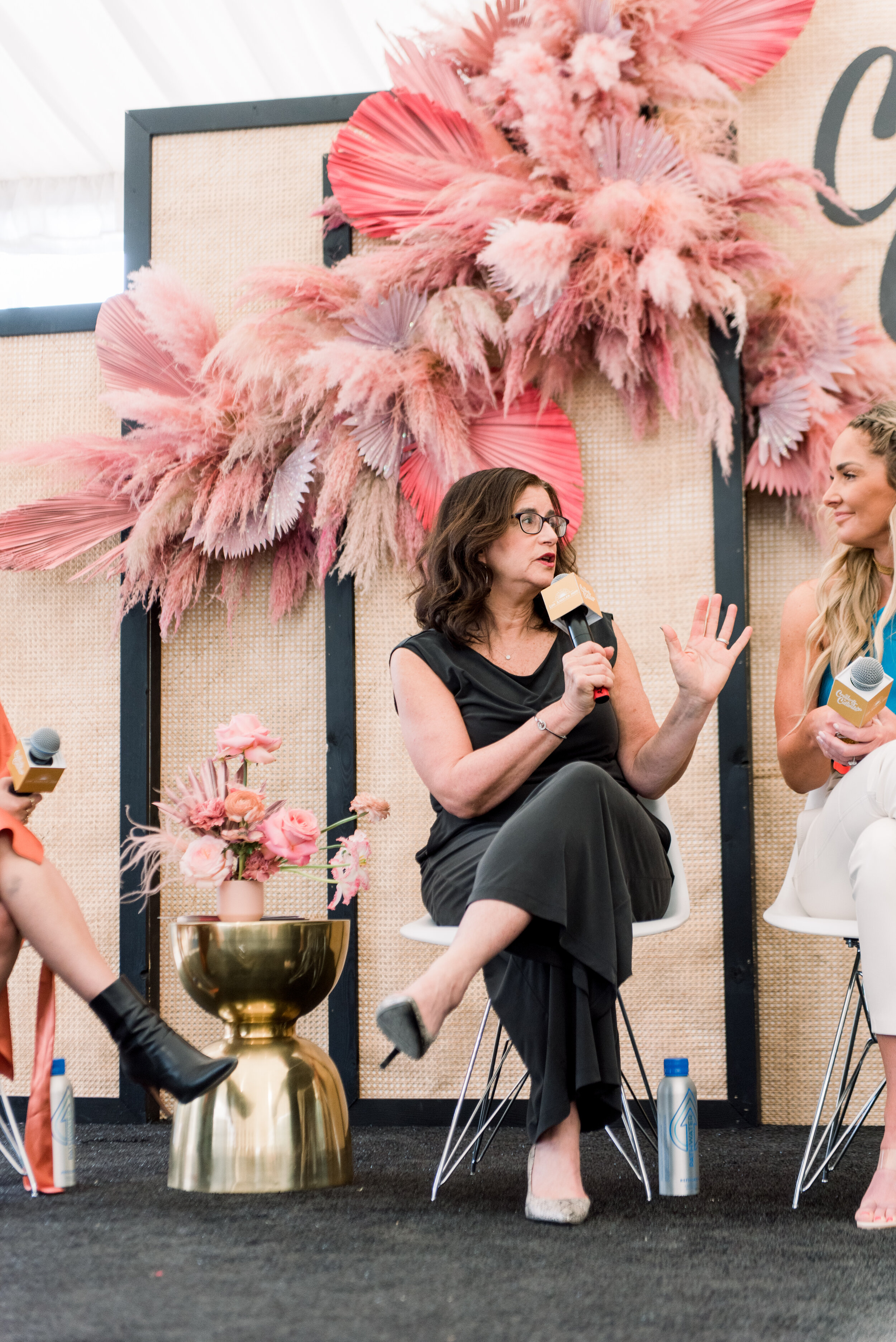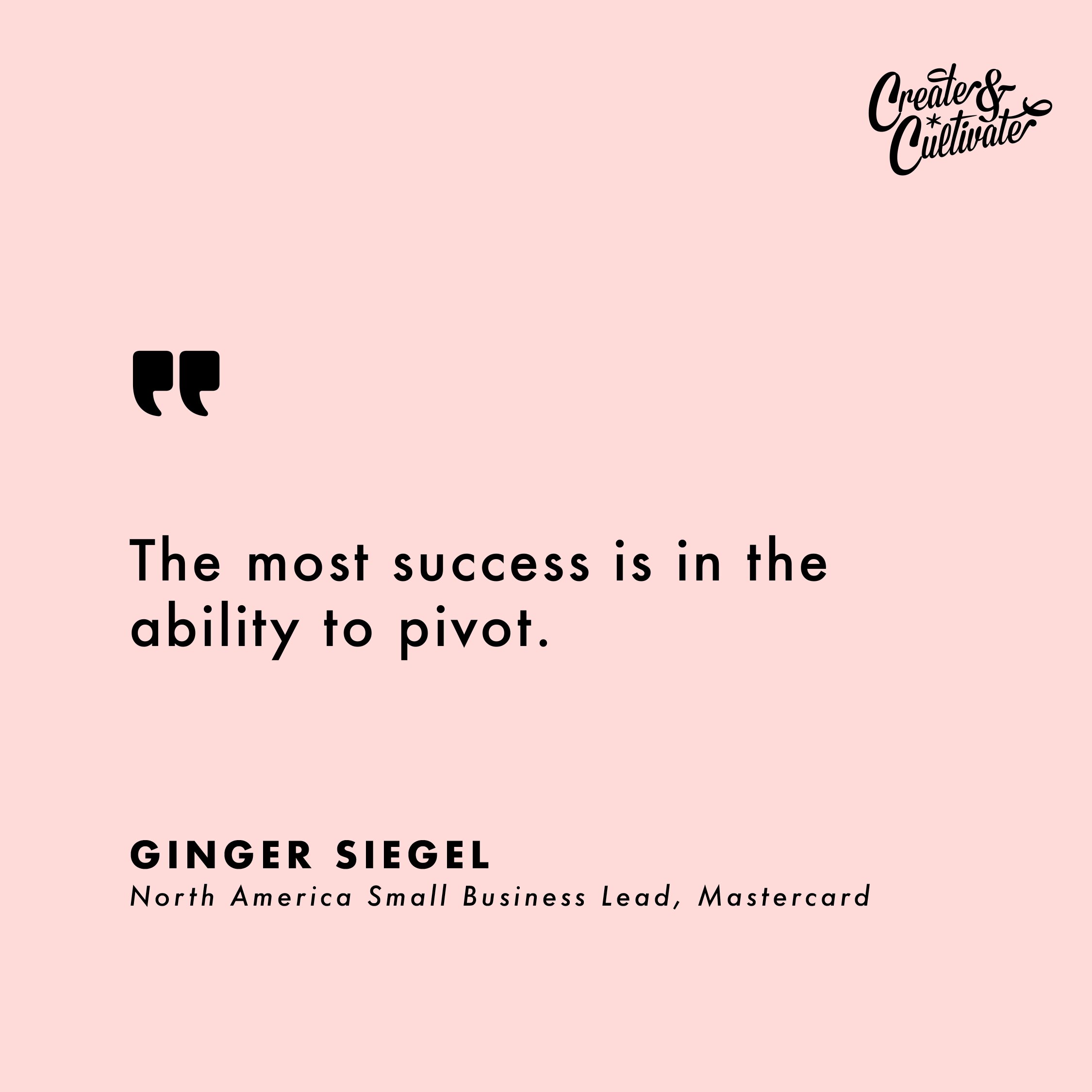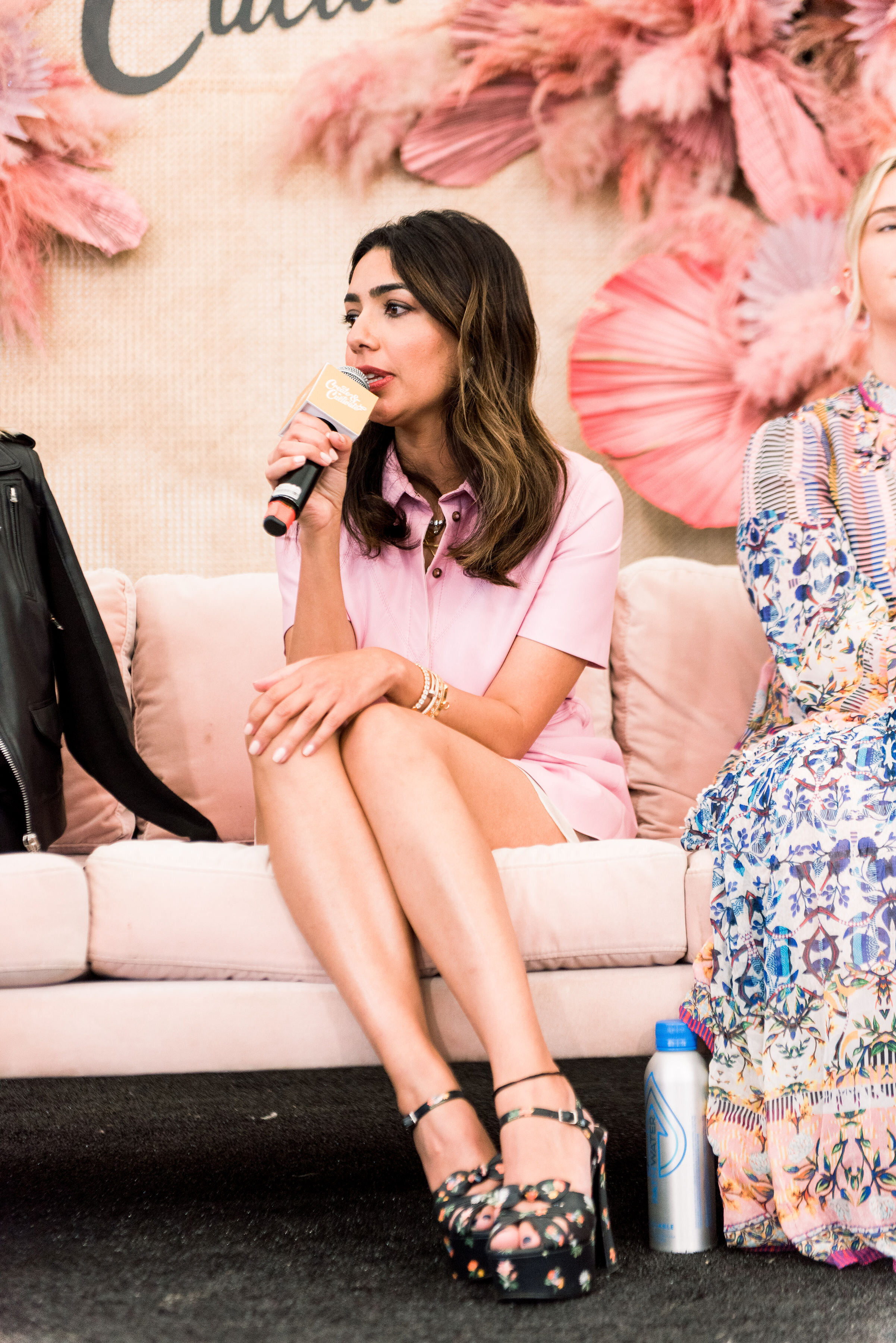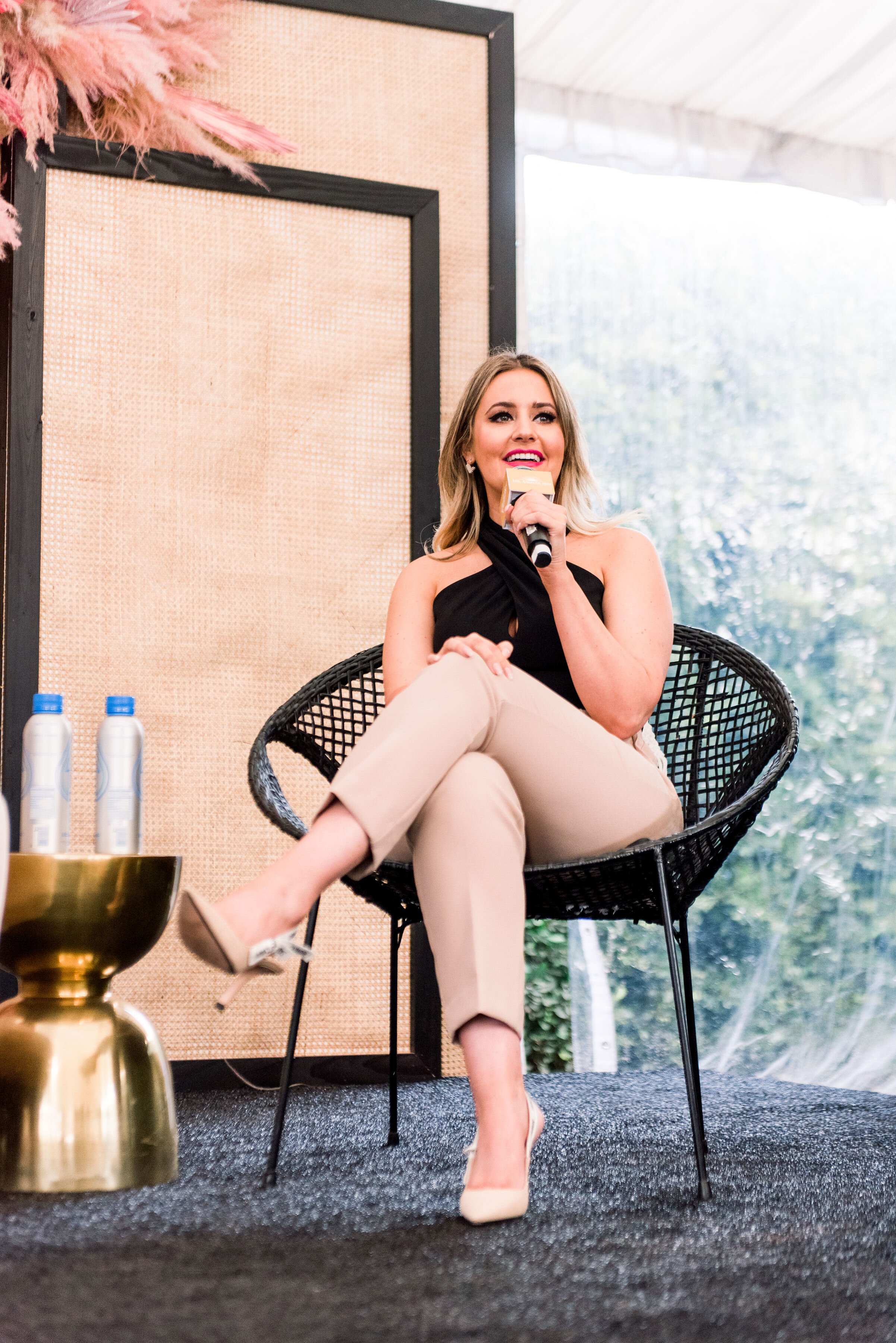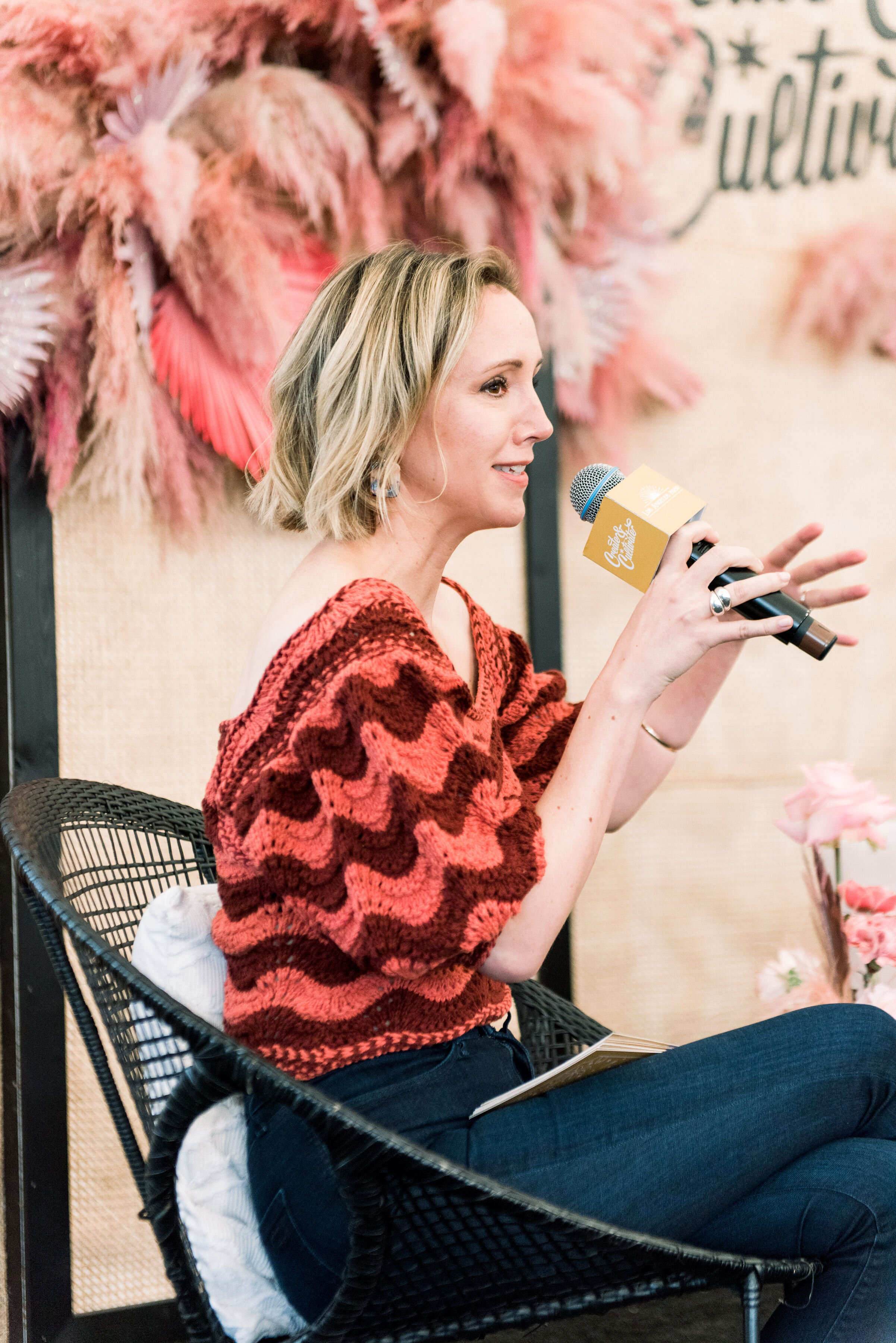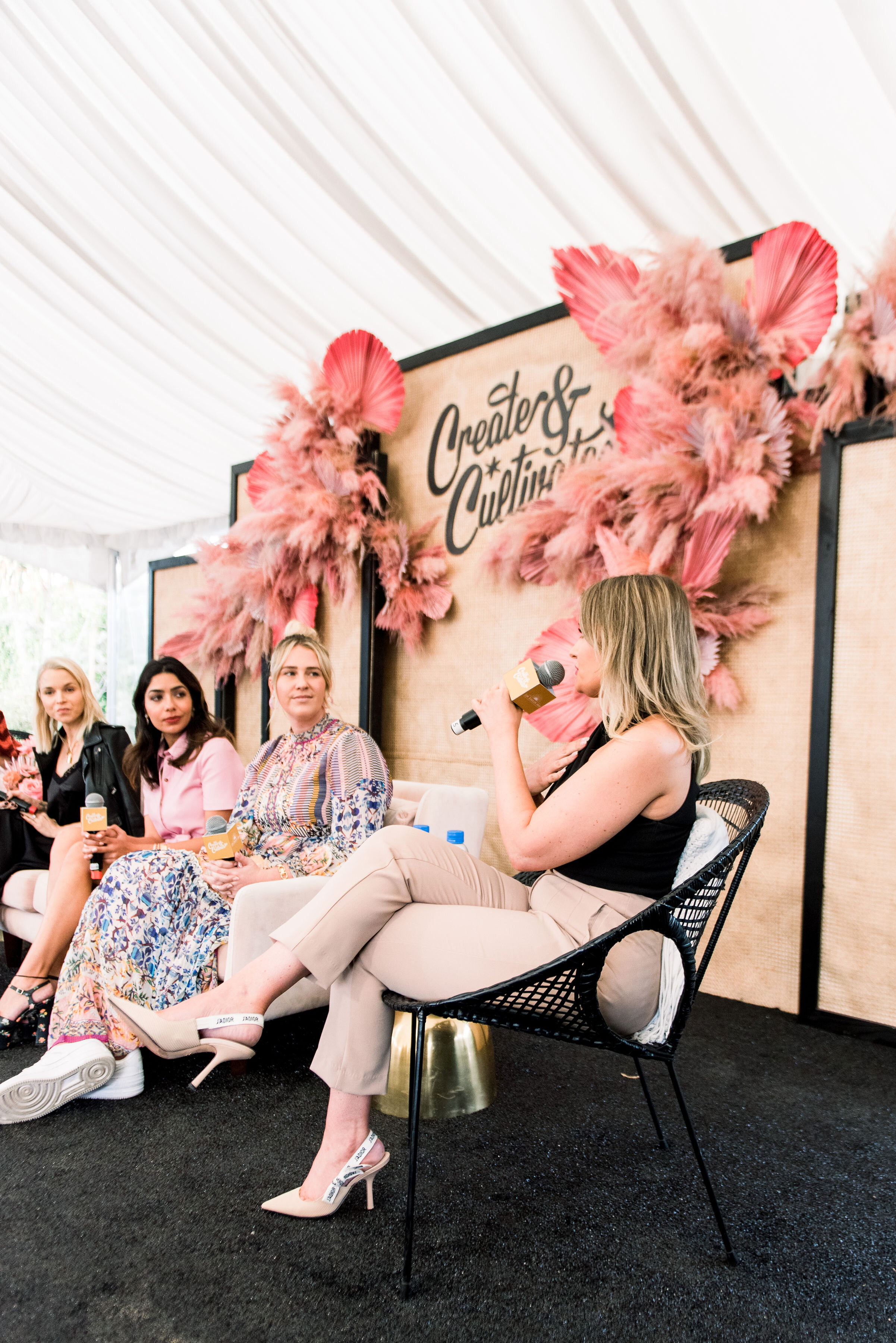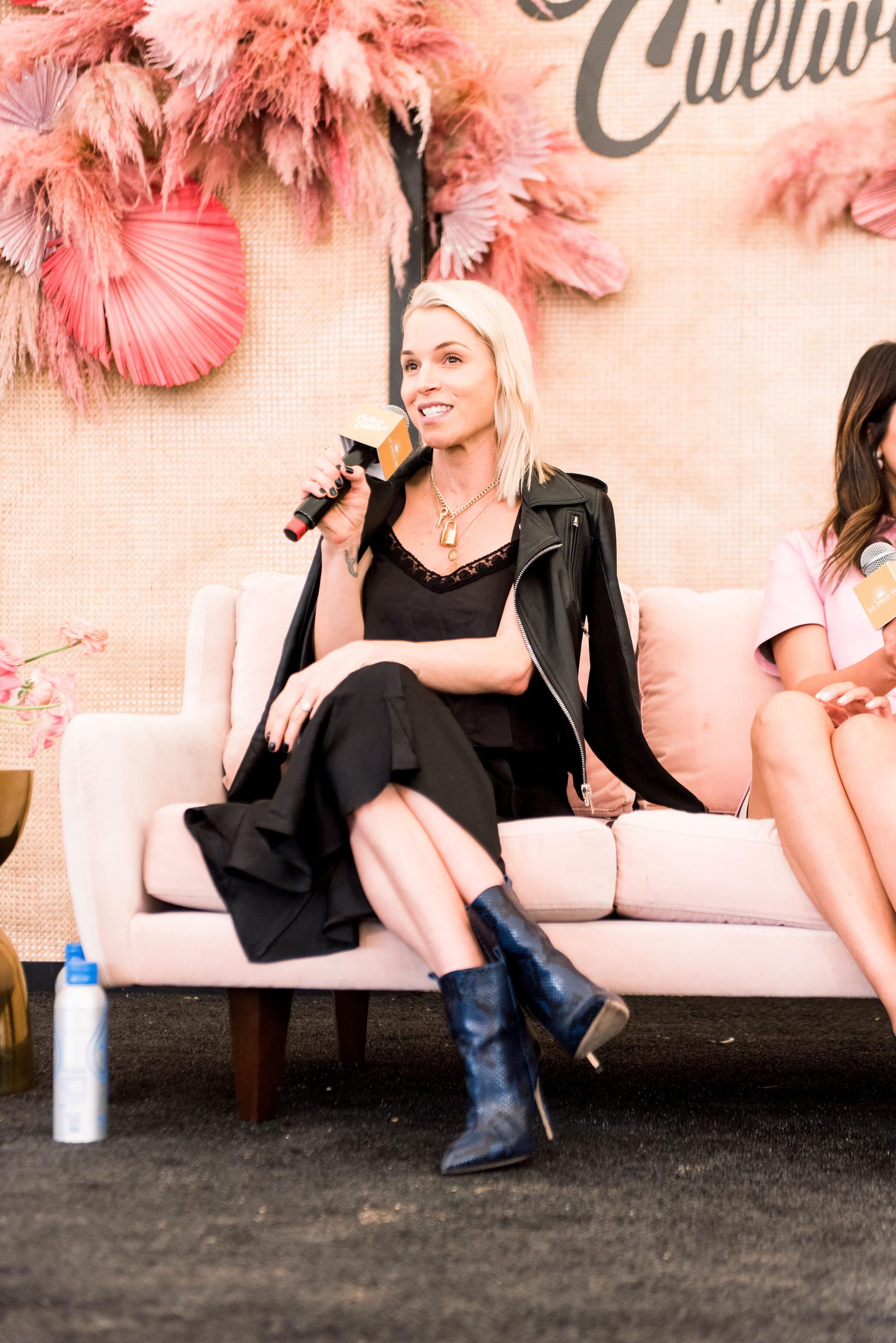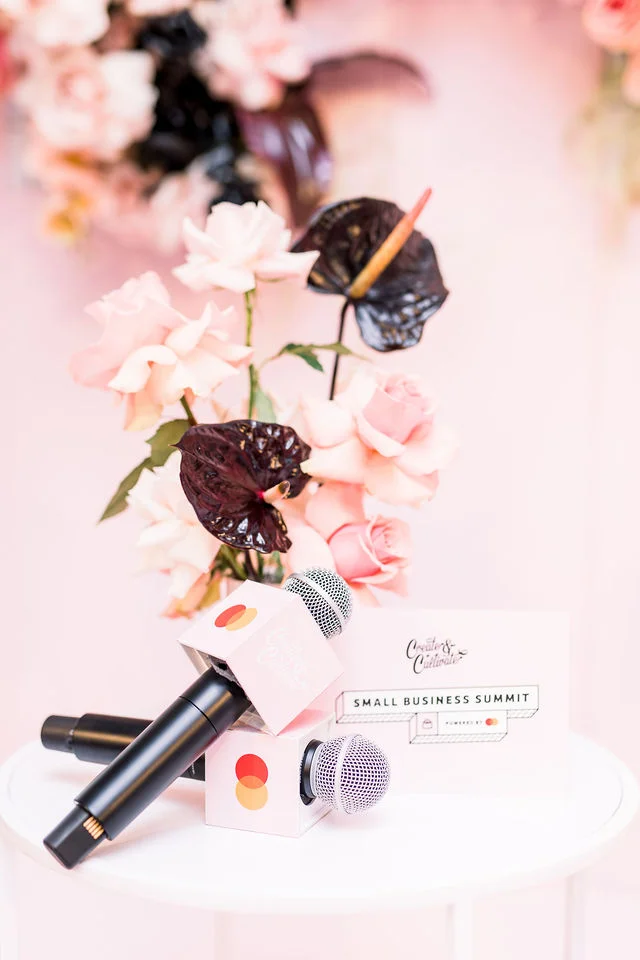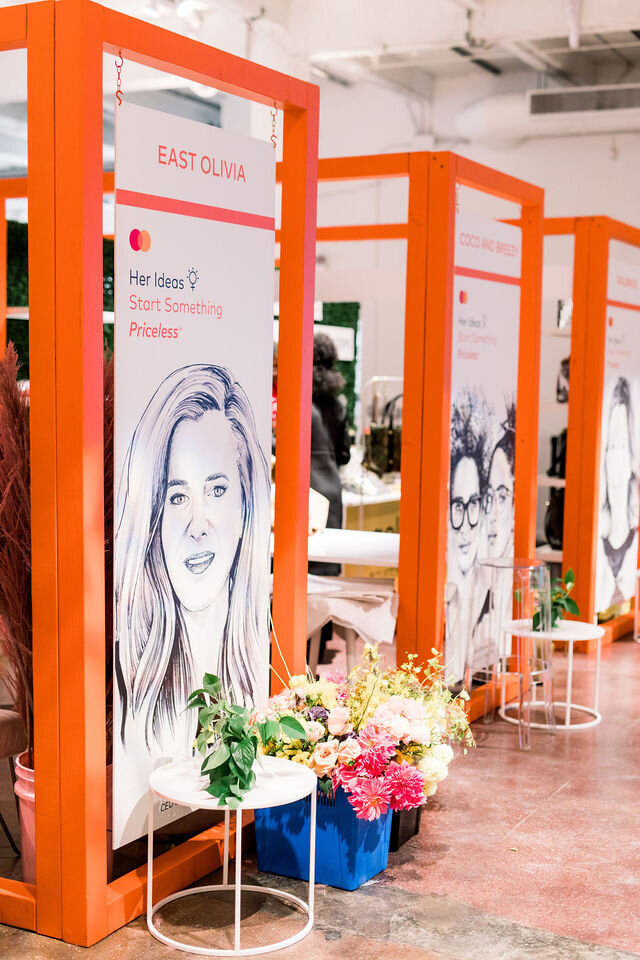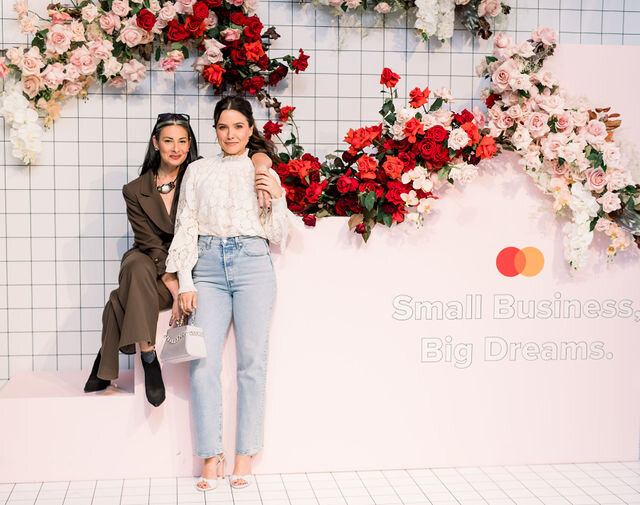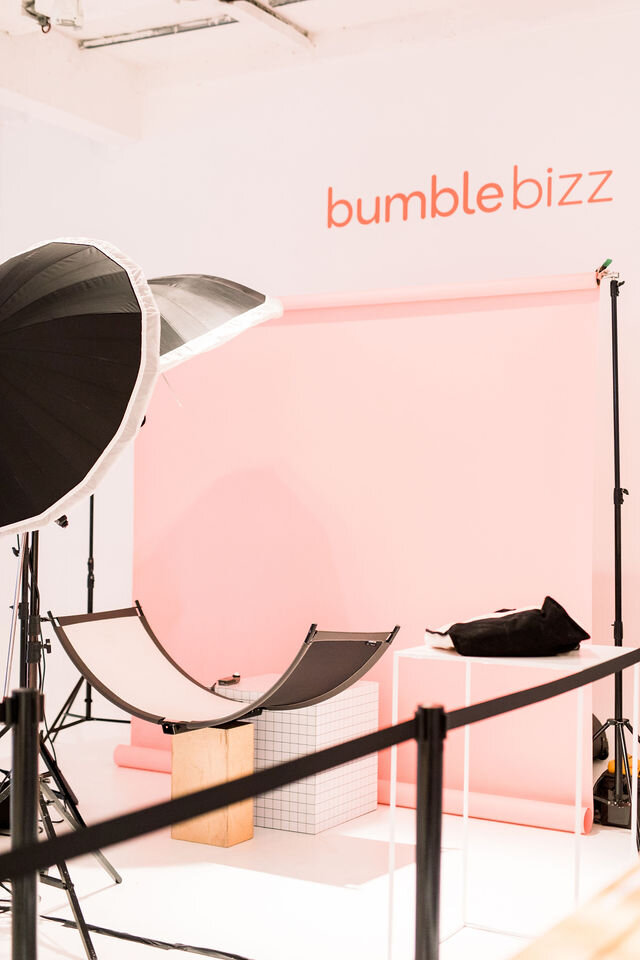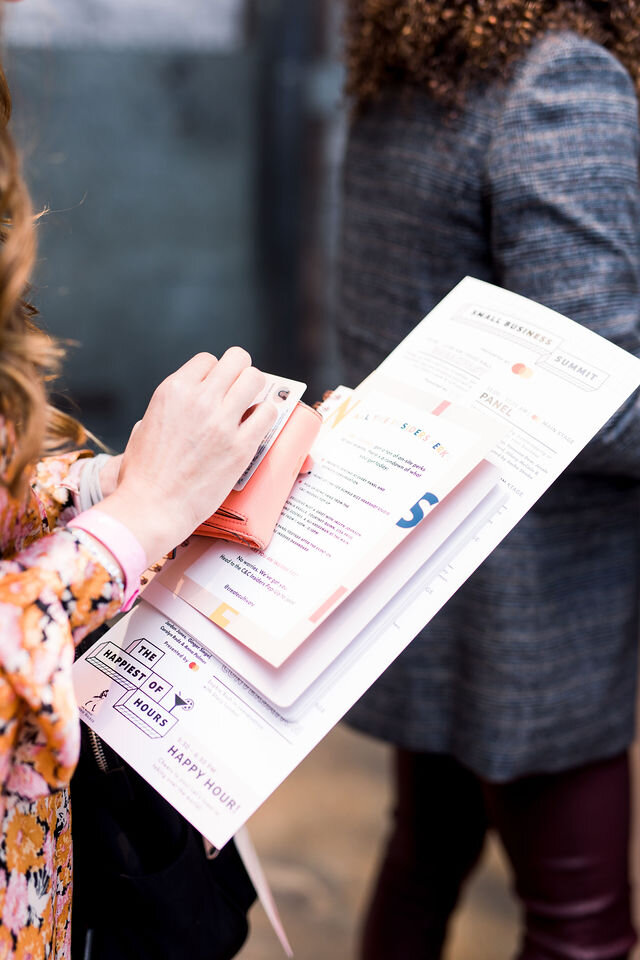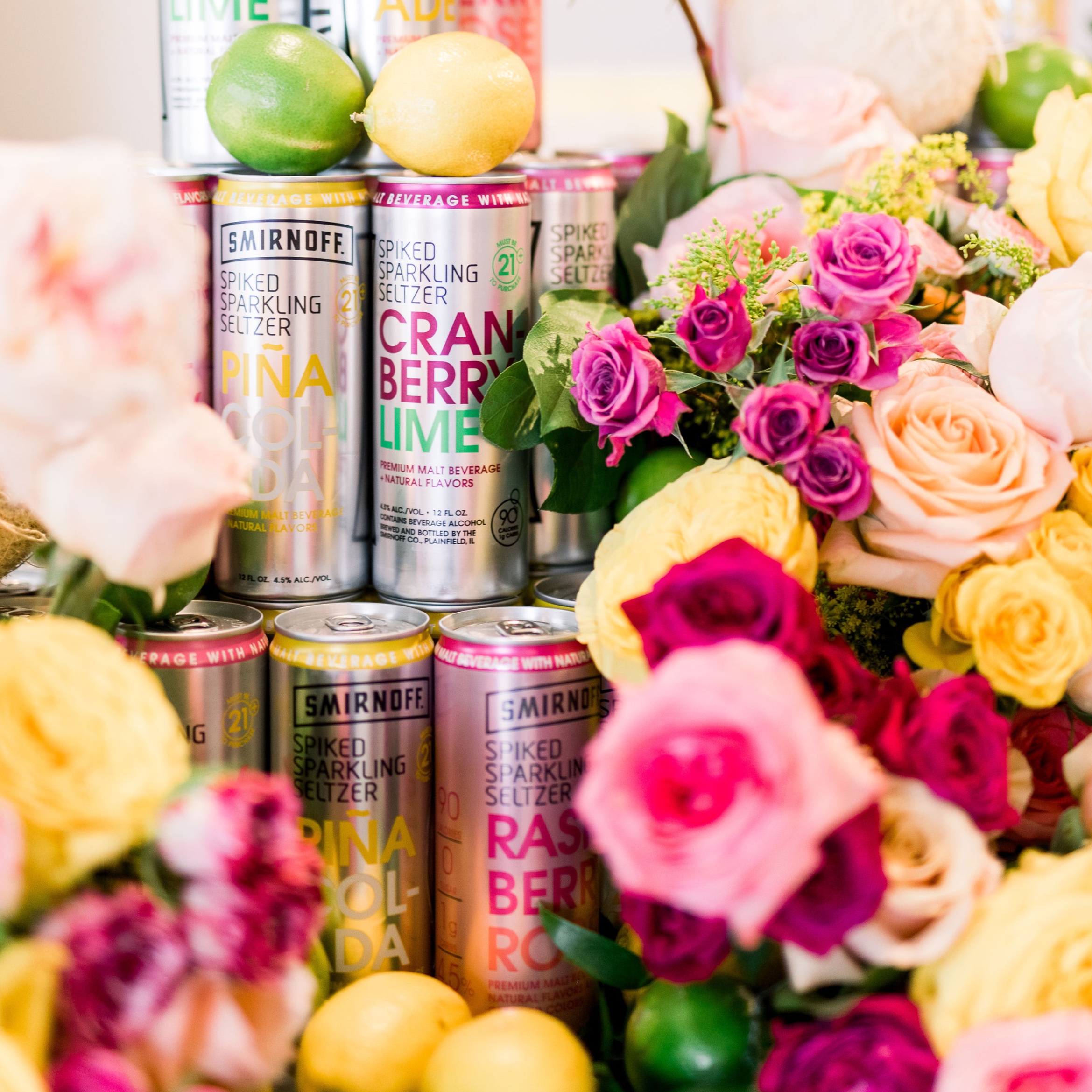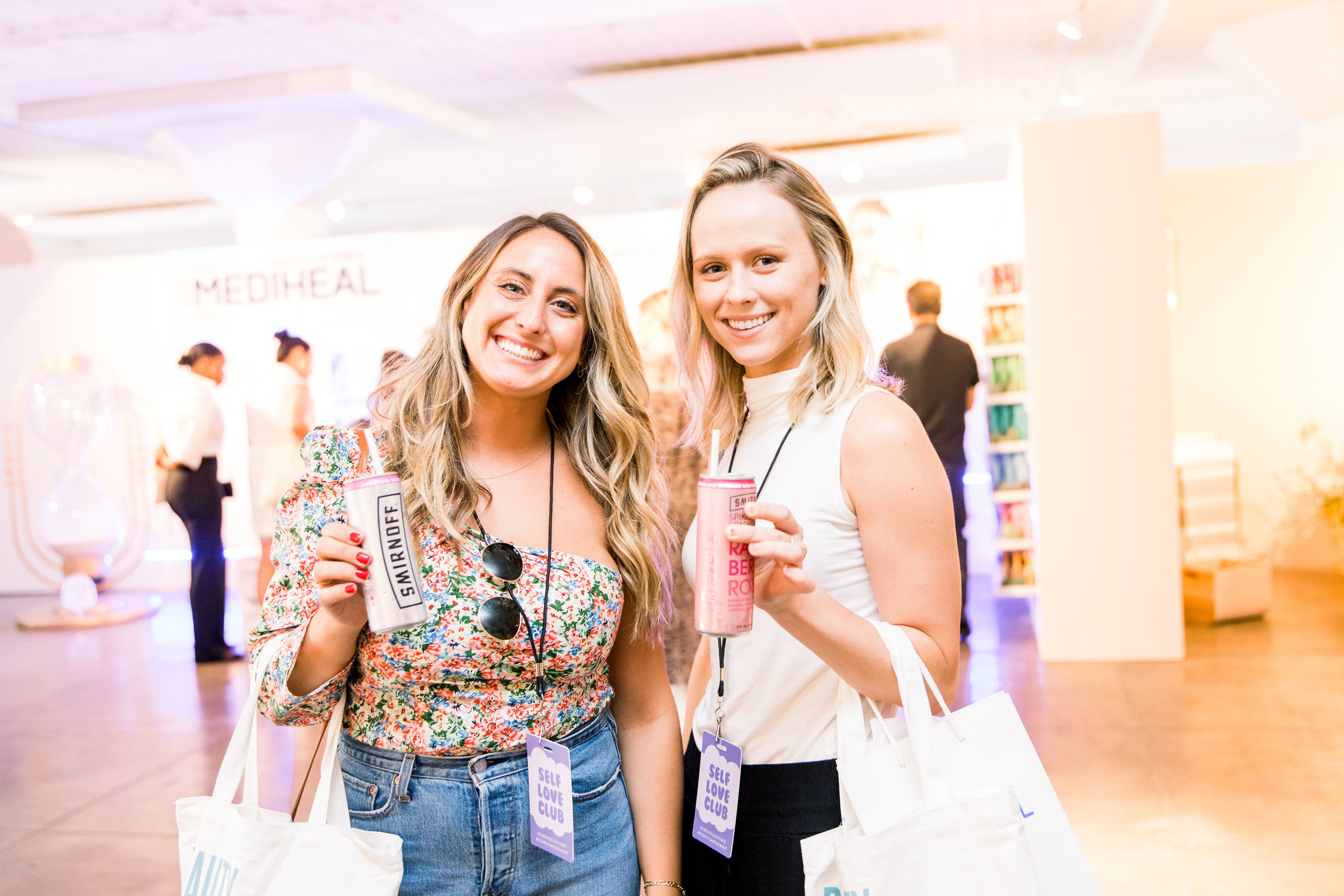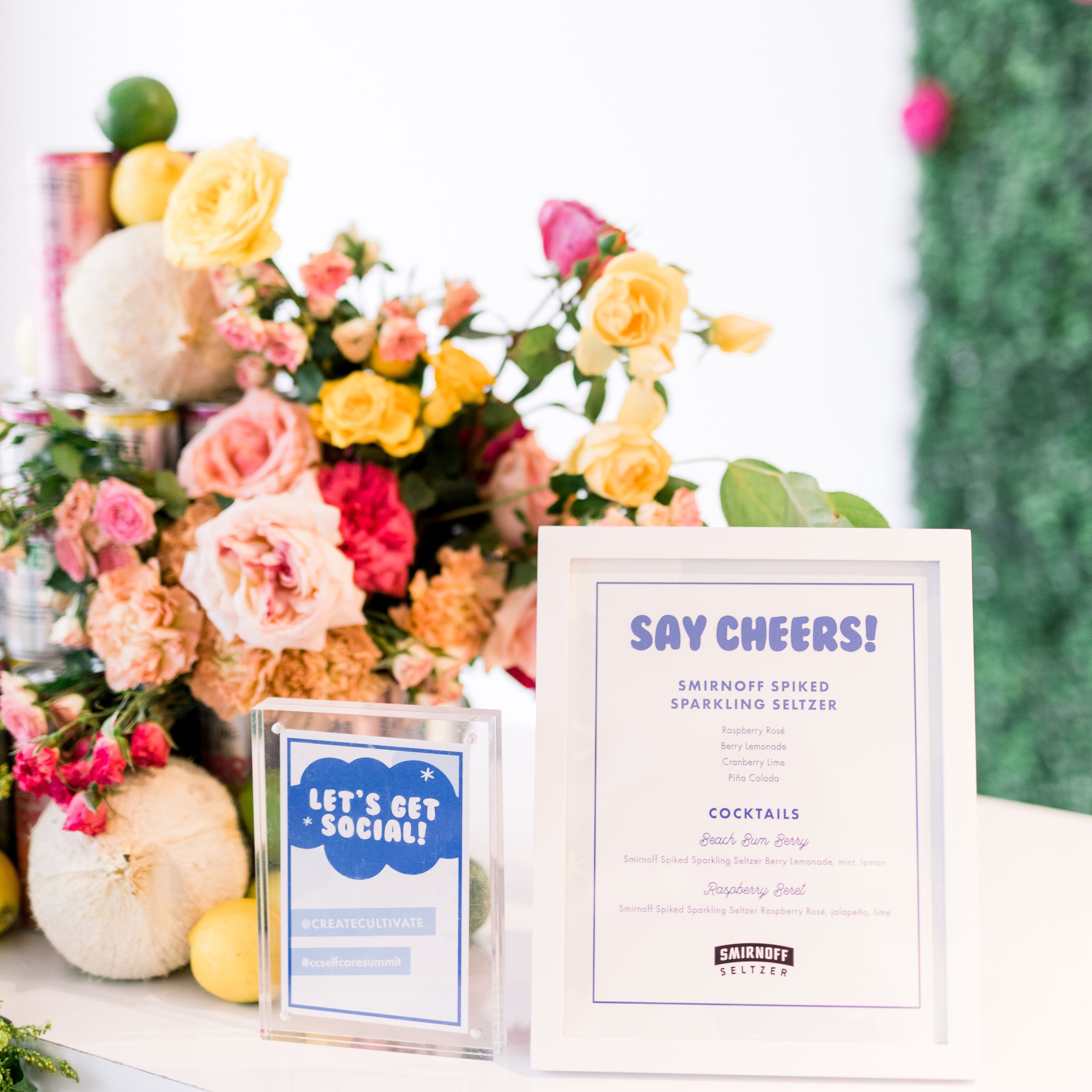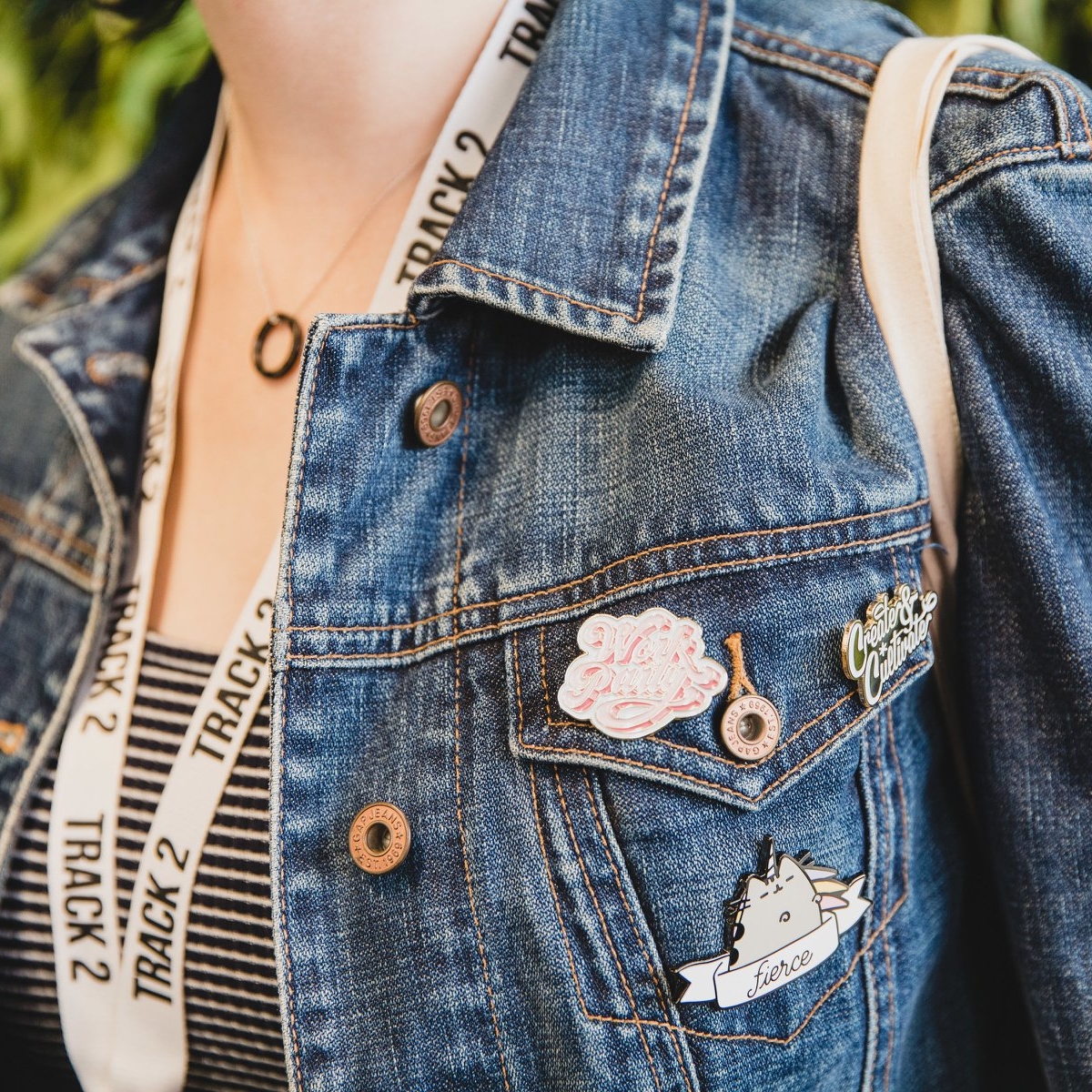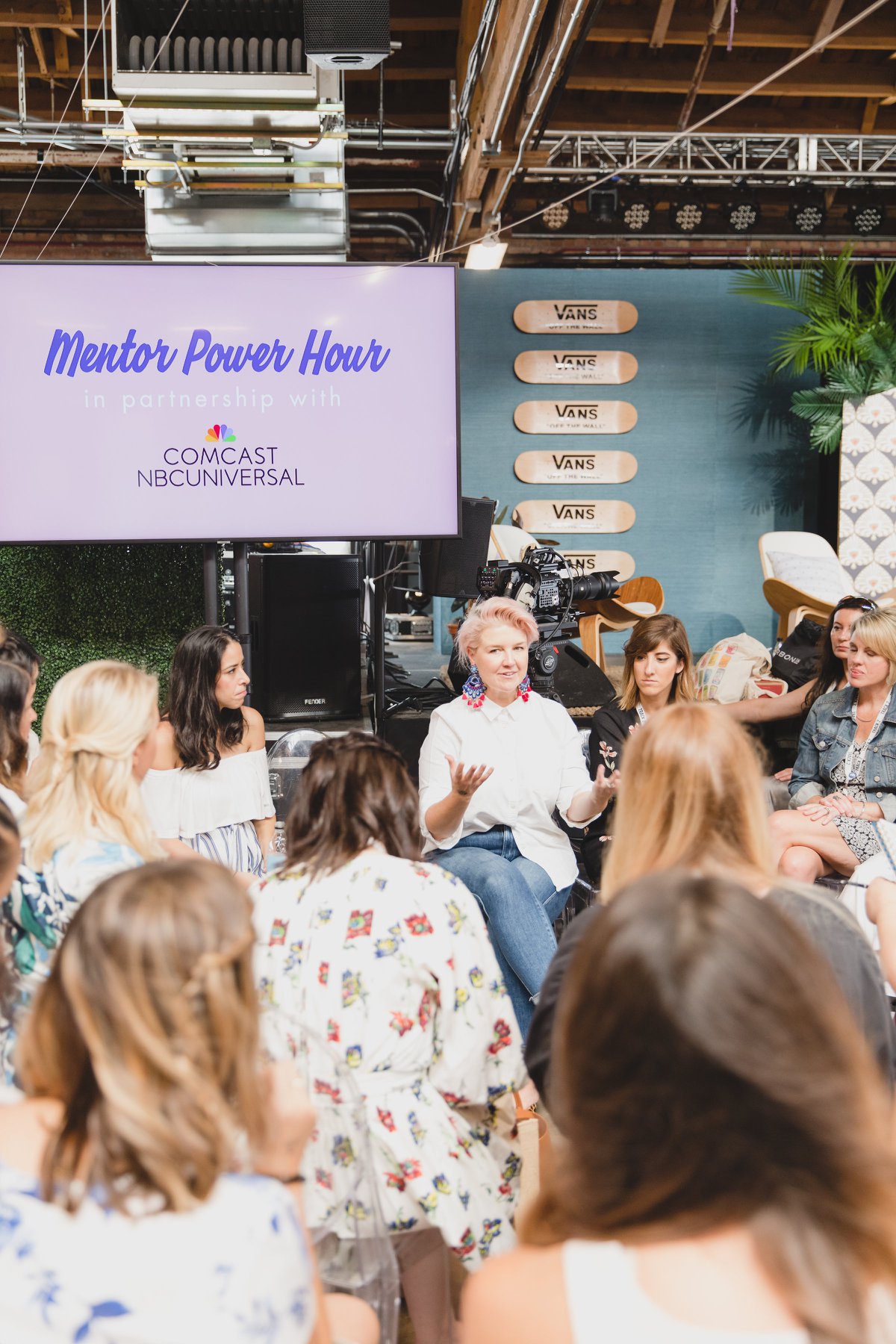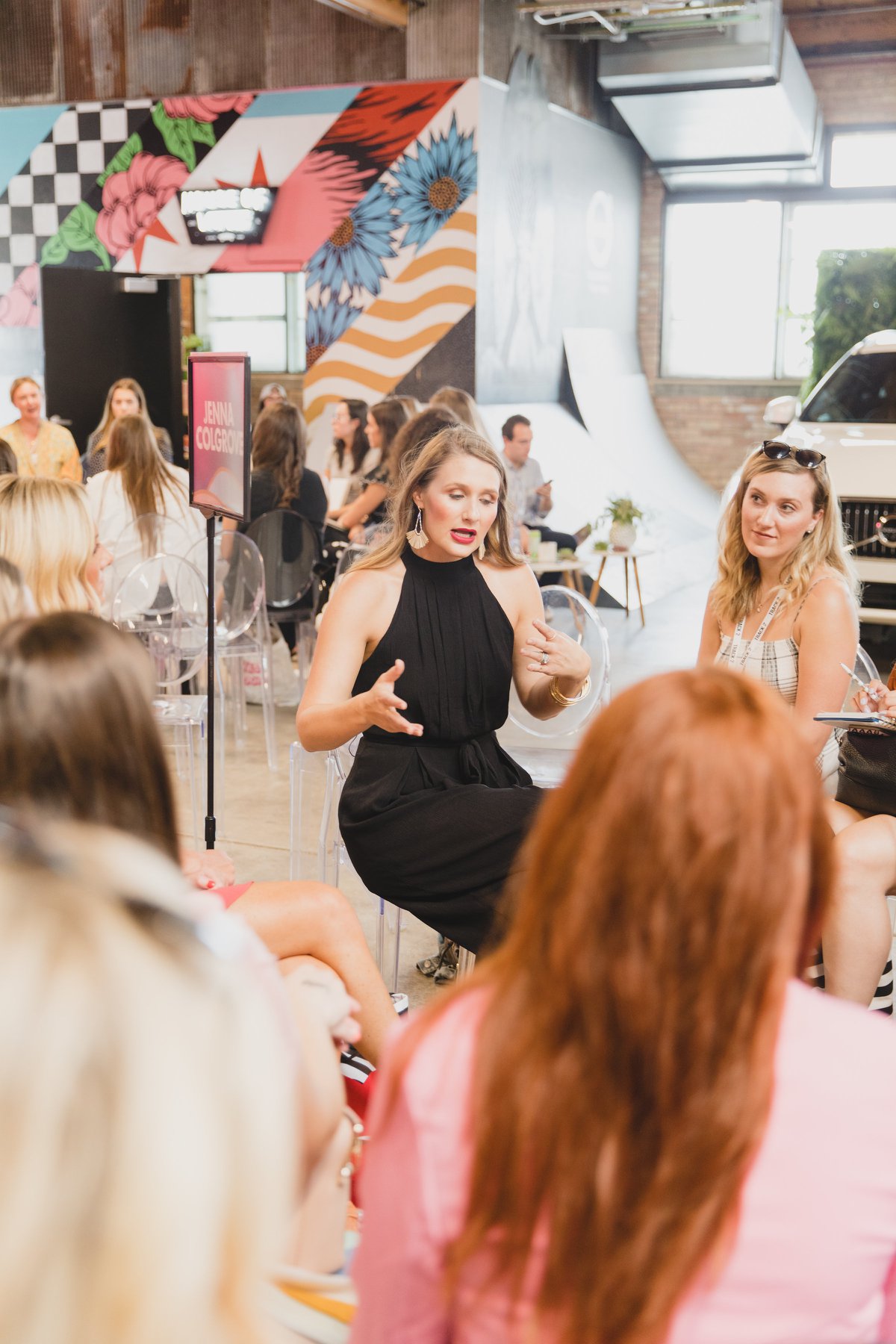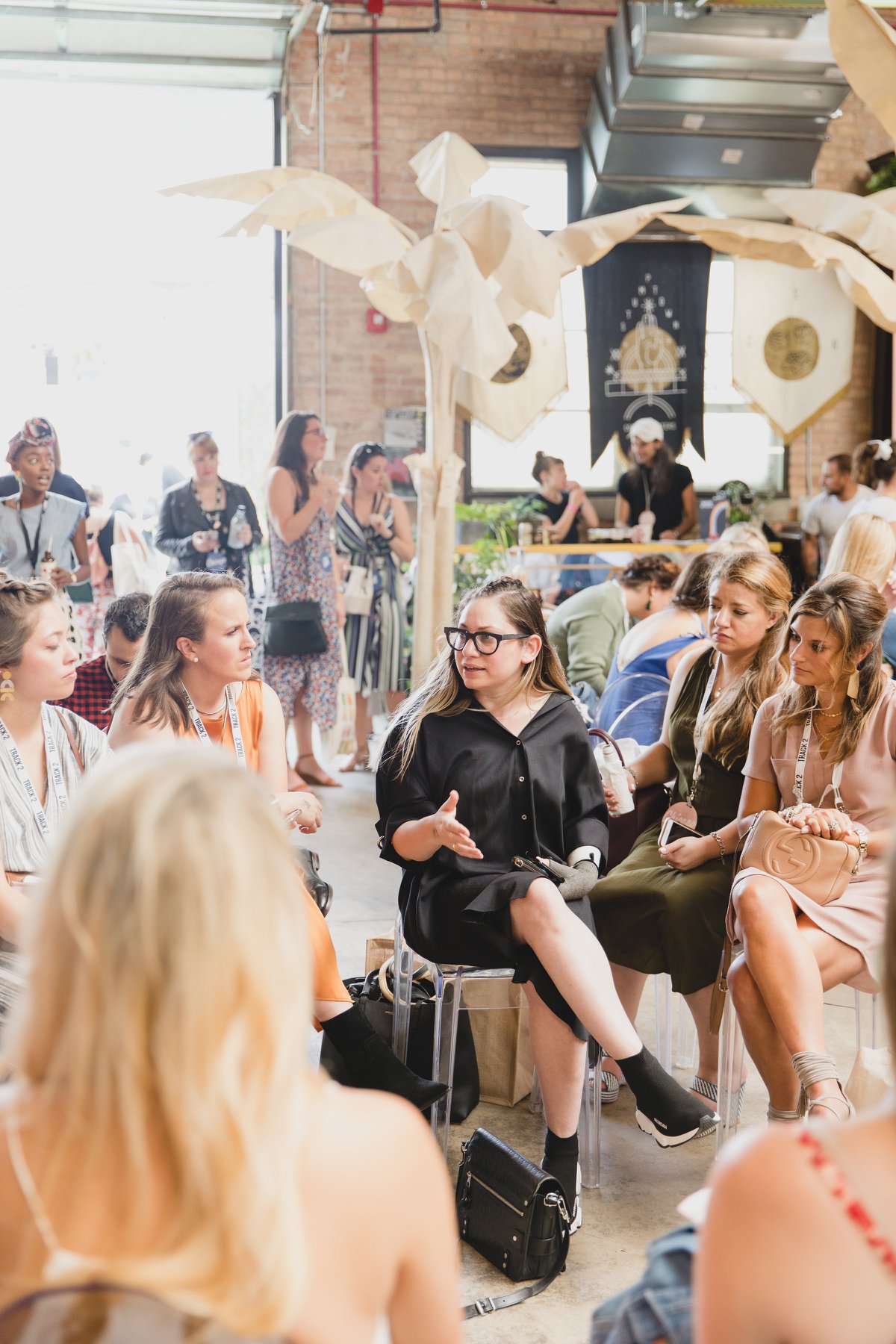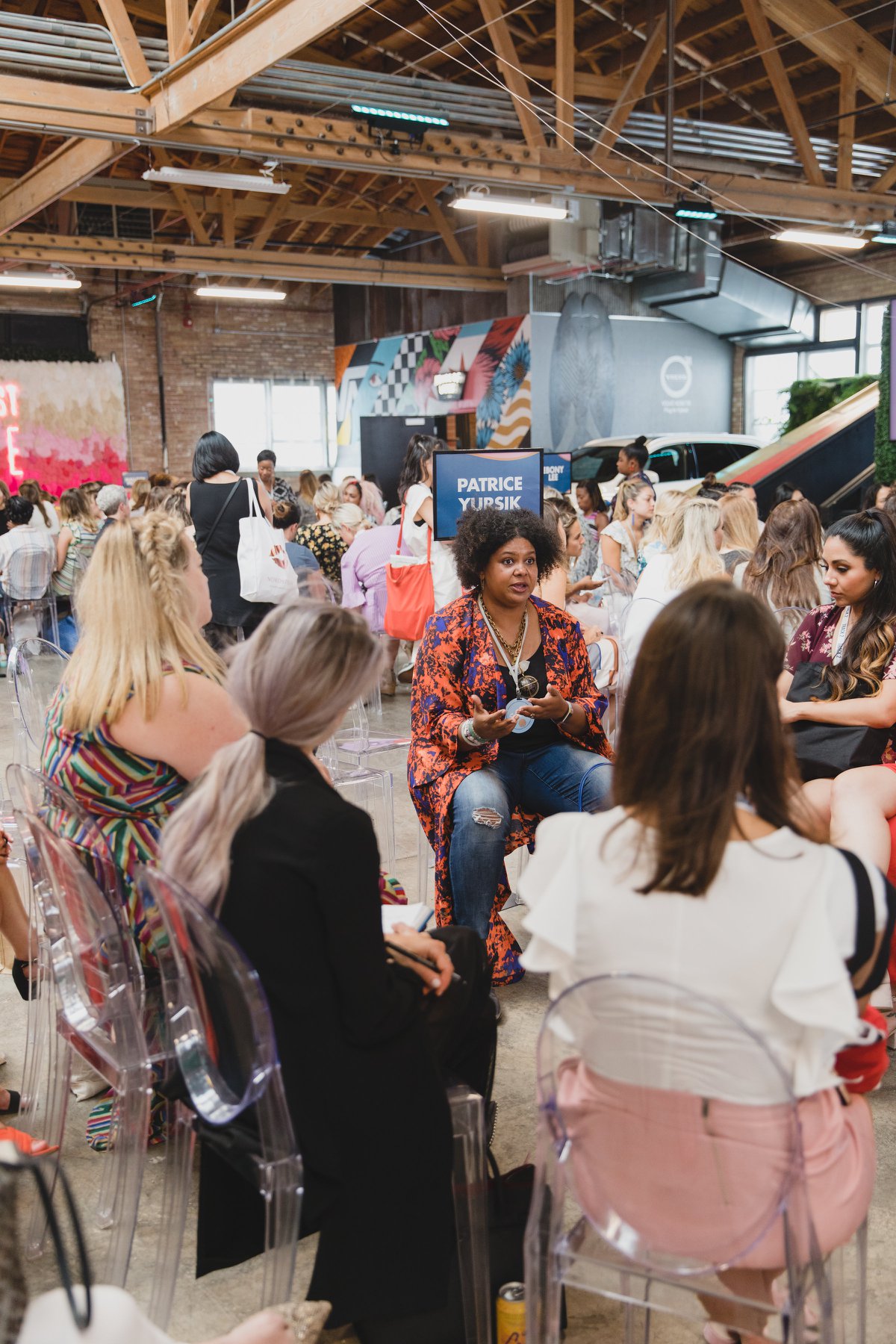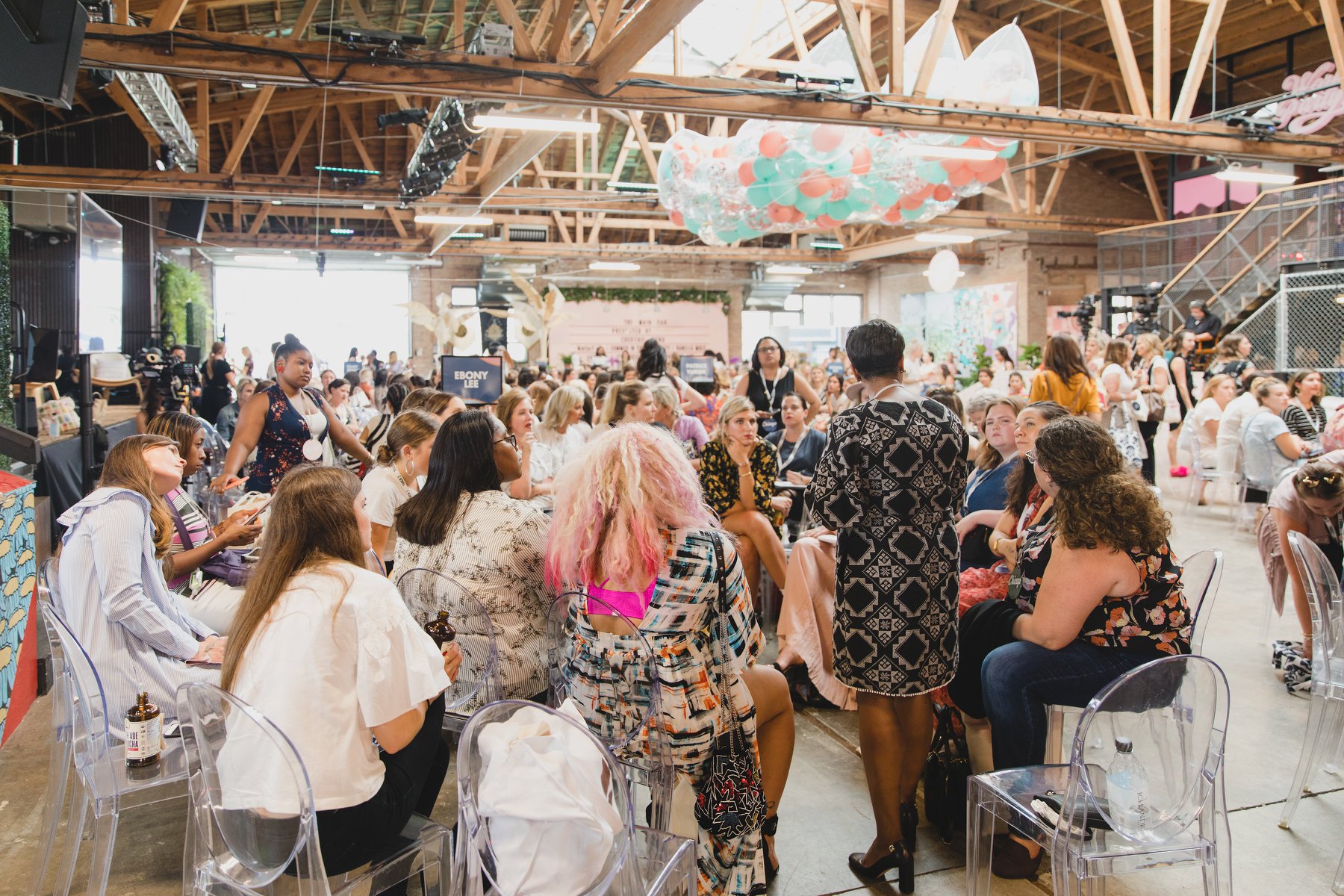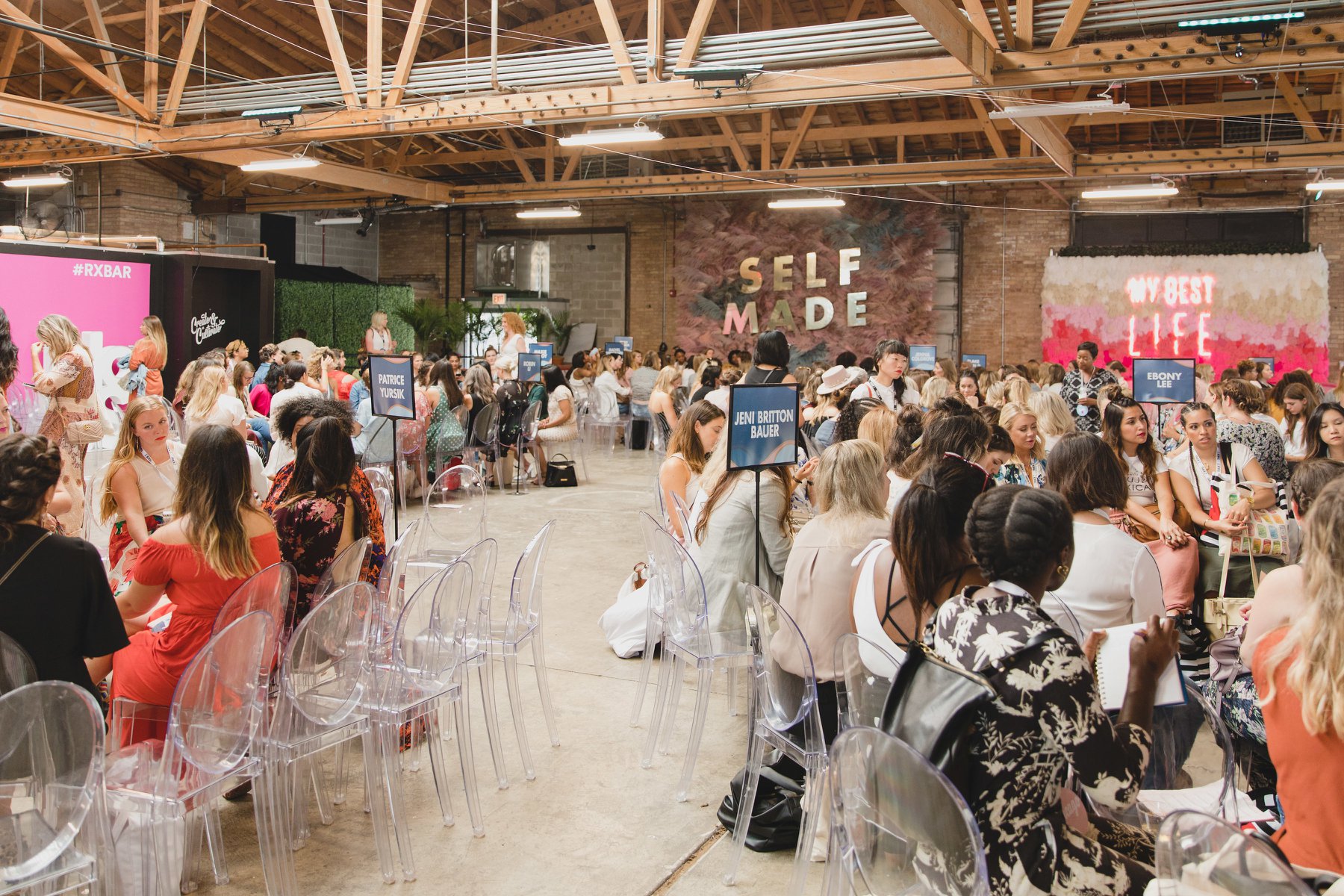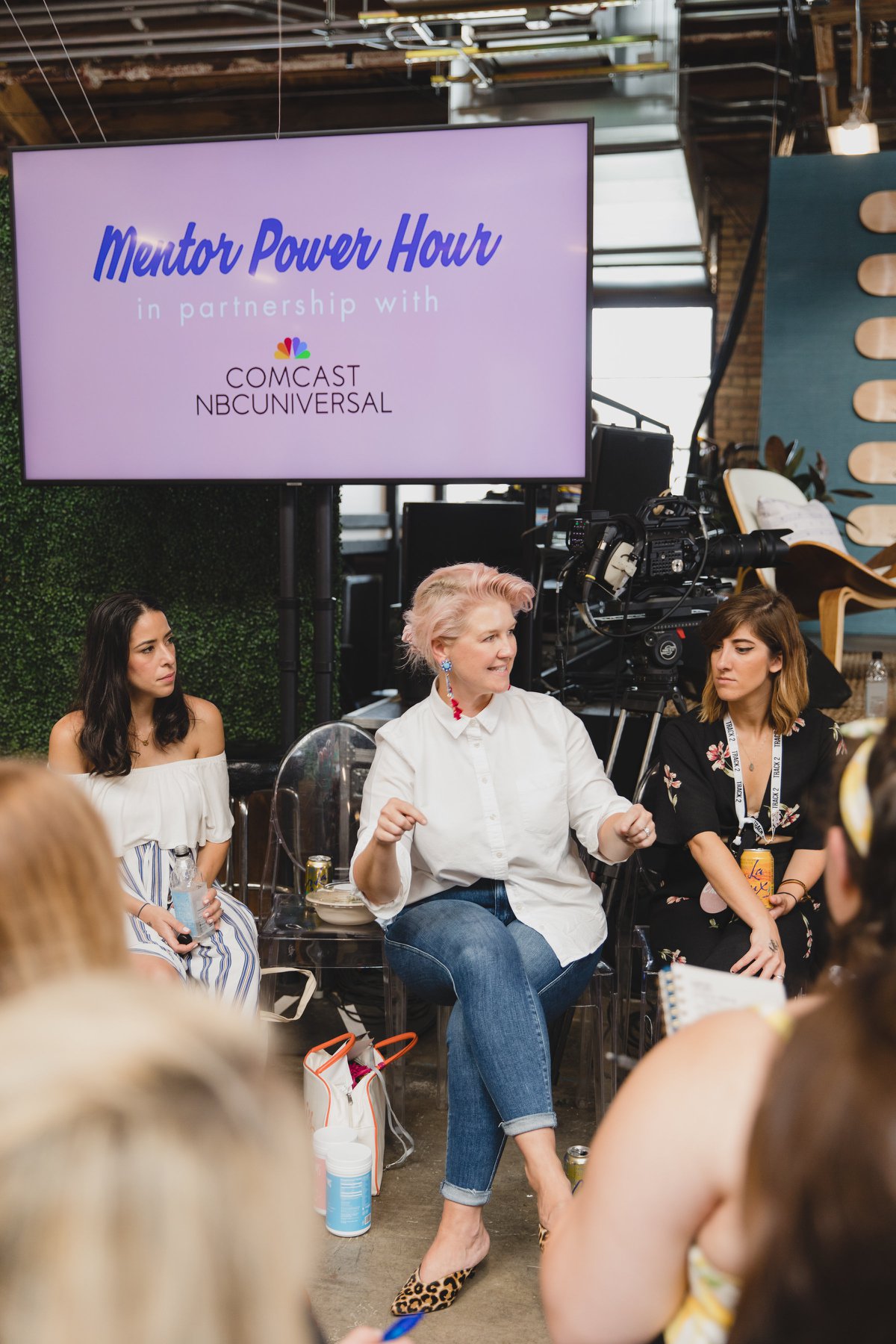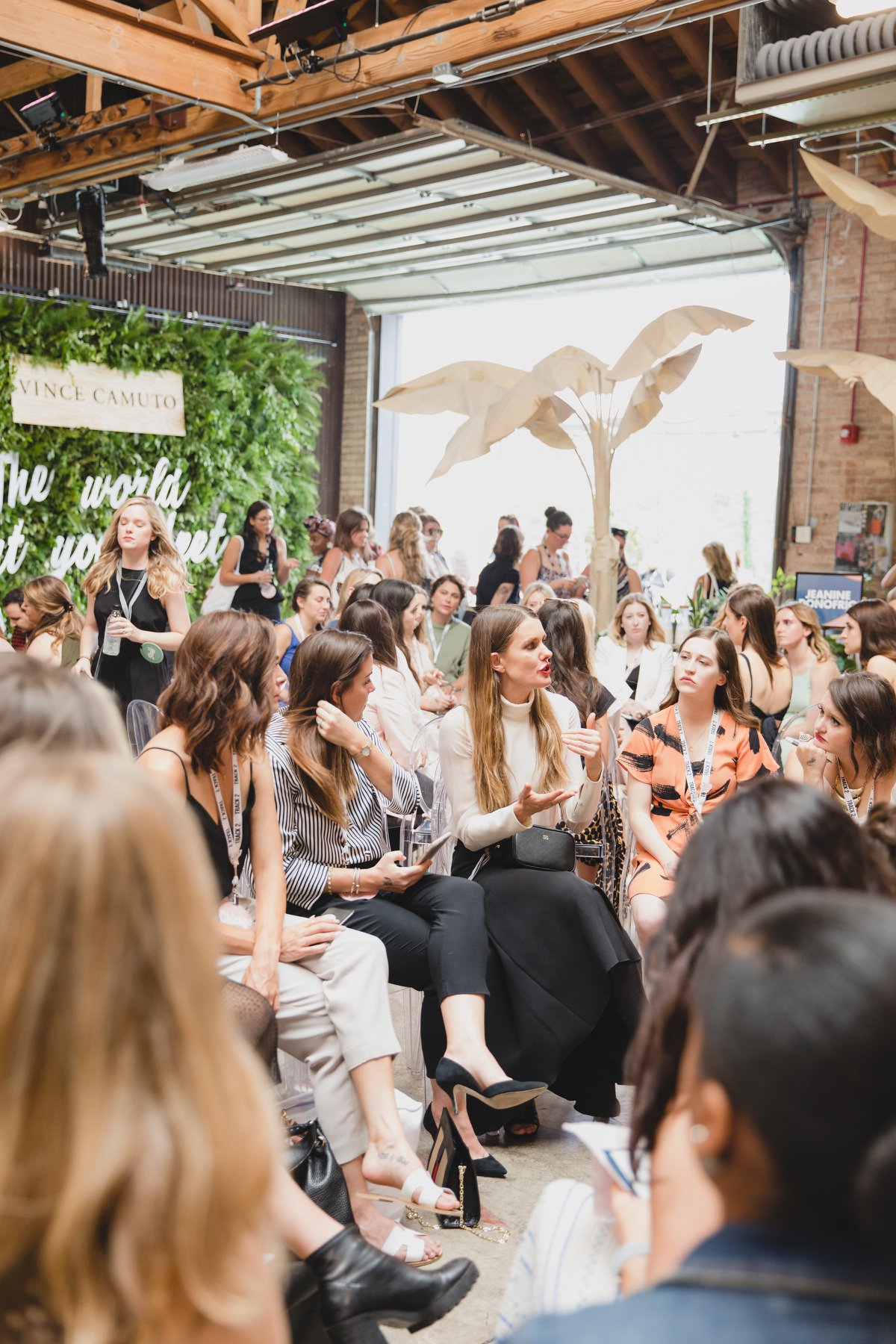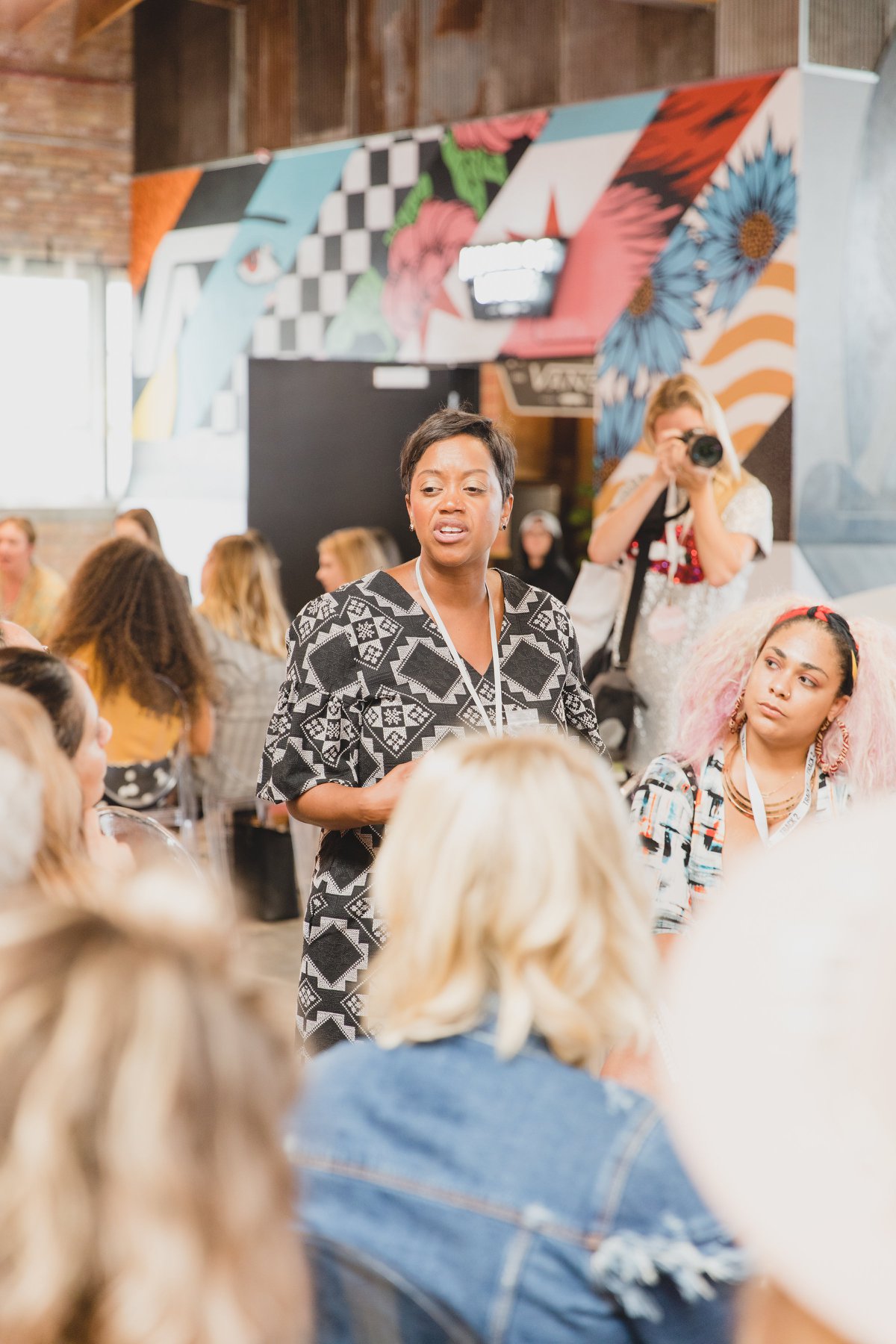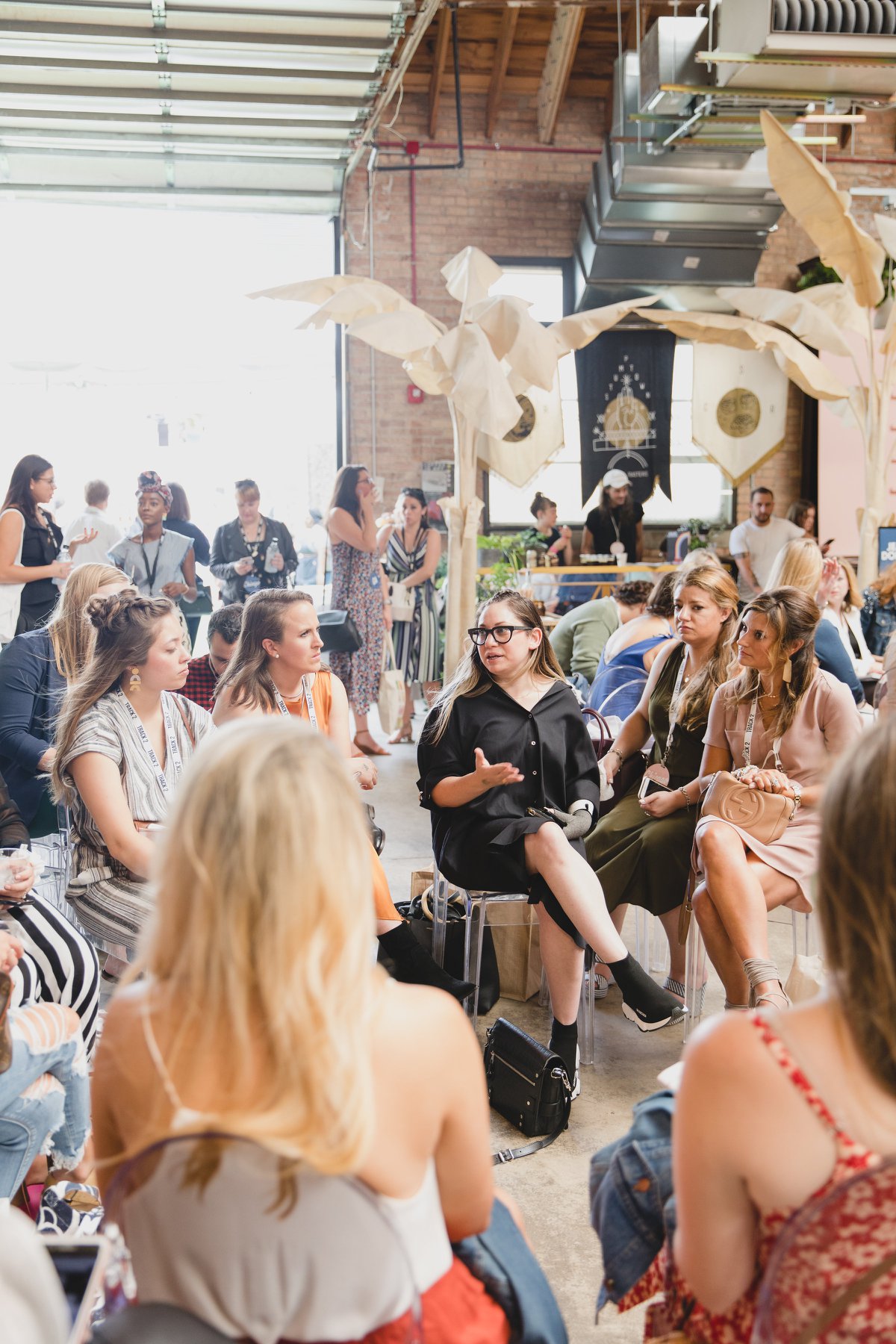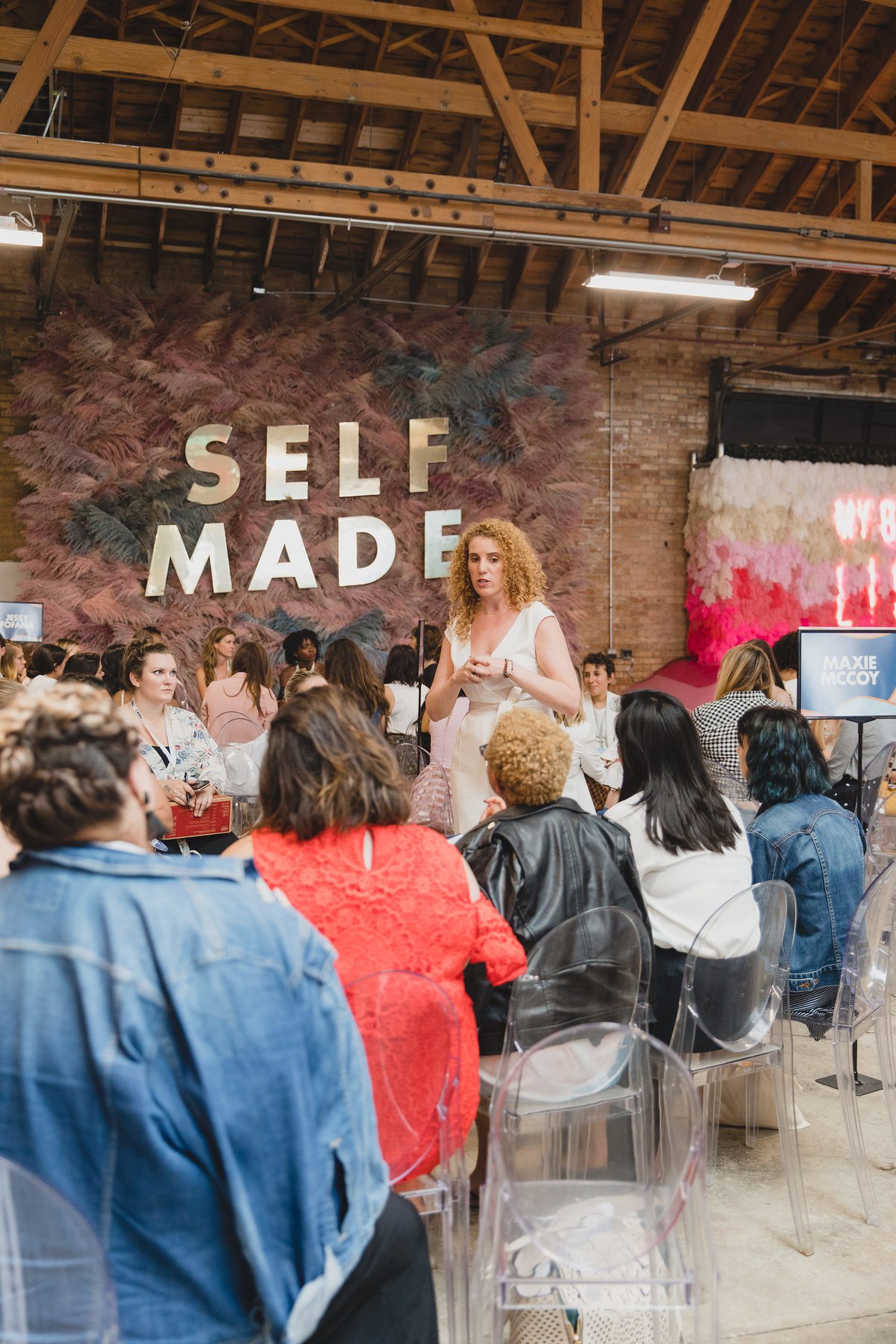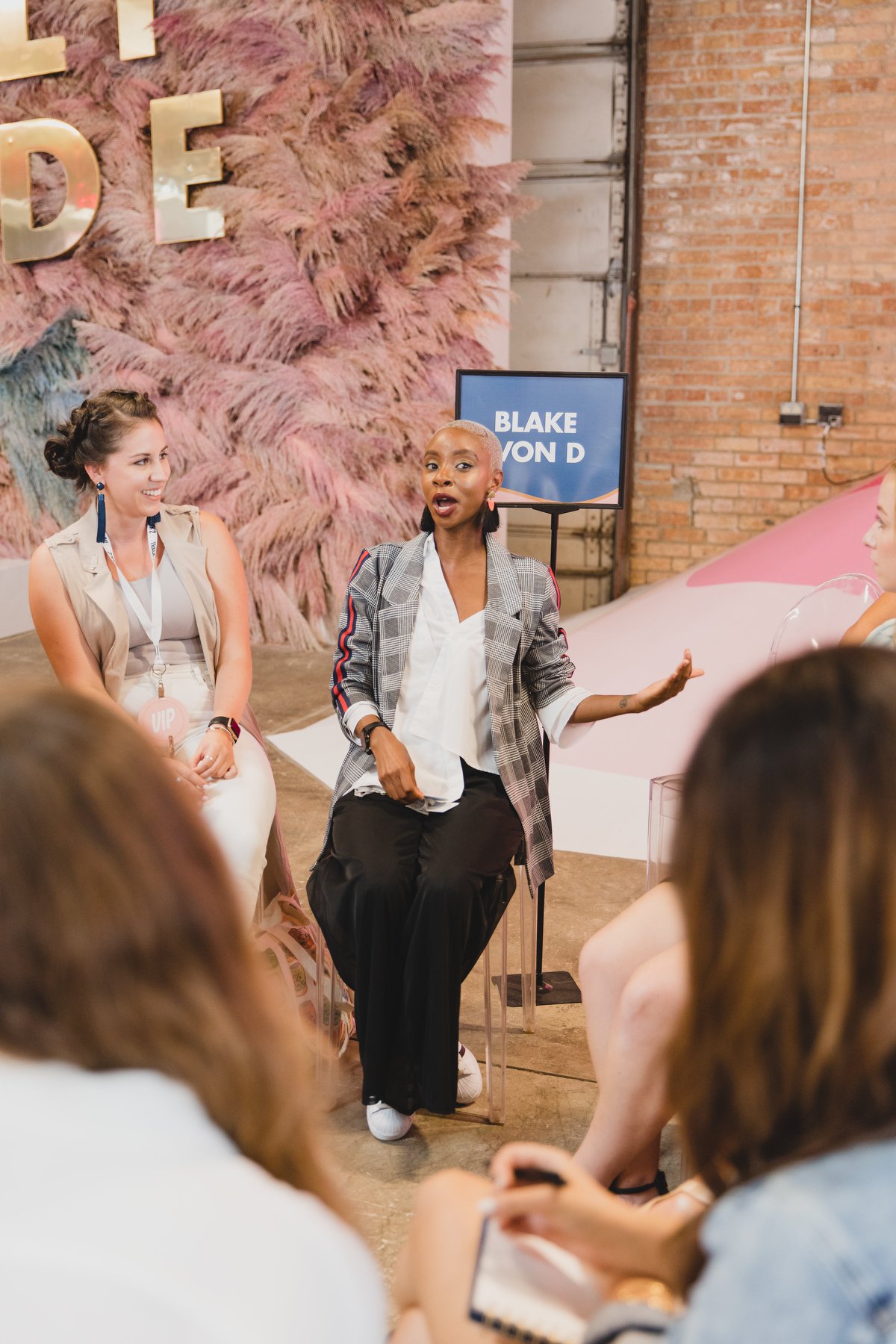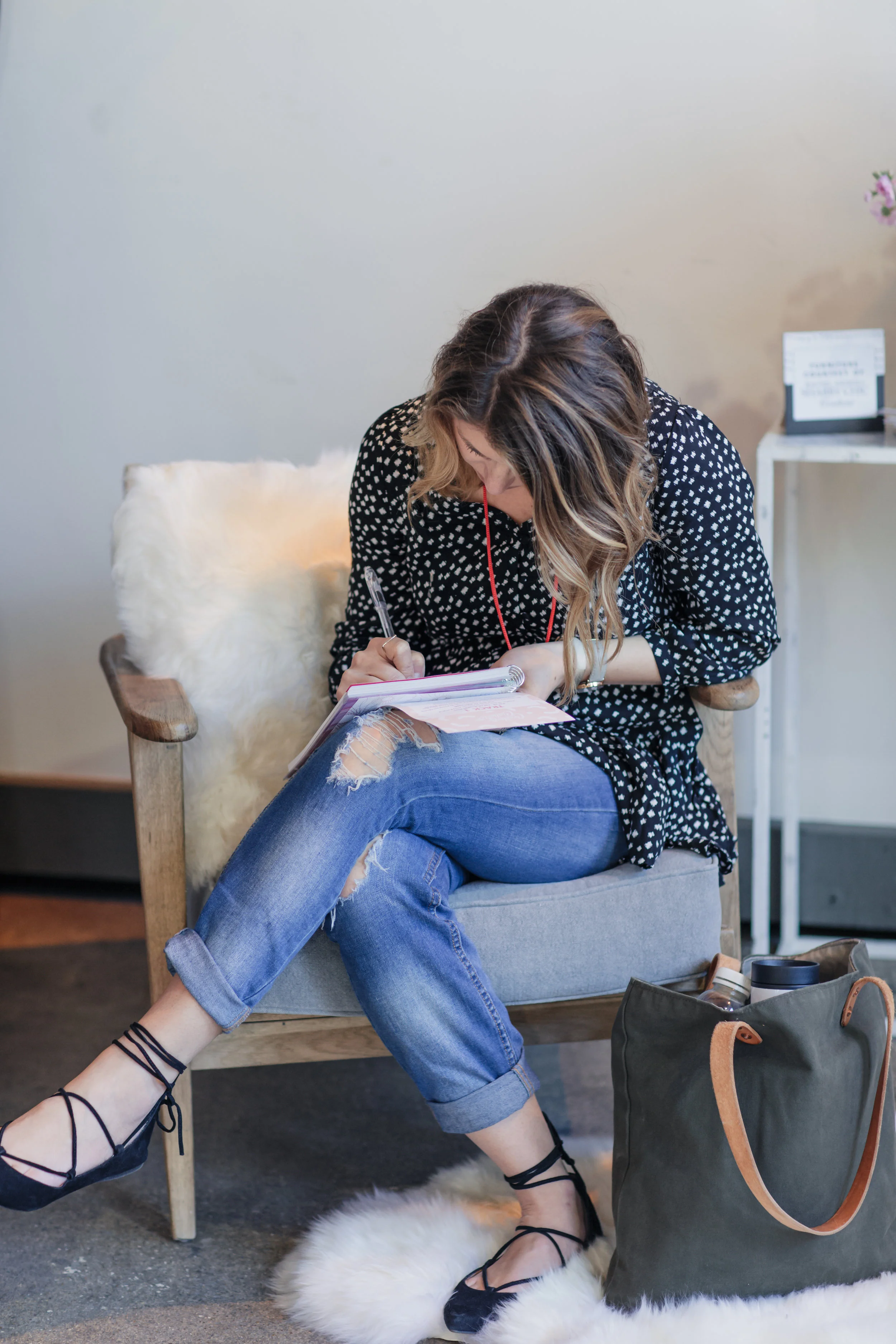“The Most Success Is in the Ability to Pivot” and More Small Business Advice From Our Mentor Session With Mastercard’s Ginger Siegel
How to rewrite the rule book and map out a new path through this “new normal.”
If there’s anything 2020 has taught us it’s our propensity for resilience and agility as we switch lanes, change plans, and pivot to accommodate this ever-changing landscape. And small business owners are at the forefront of this movement. With over 30 million small businesses in the U.S they create 1.5 million jobs annually (that’s 64% of new jobs created), so it’s critical that we provide the support and resources they need to get through this unprecedented time.
So, how do we rewrite the rule book and map out a new path through this “new normal”? Mentorship is key to helping the small business community to pivot and move forward to not only survive but thrive right now and in the future. To help, we tapped Ginger Siegel, the North America small business lead at Mastercard to answer your questions in real-time during a digital mentor session at our recent Self-Care & Beauty Digital Summit.
In case you missed it, we’re sharing some of her impactful answers from the mentor session below.
When launching a new brand how do you decide how to allocate your limited financial resources?
I think what's most important here is to have a business plan upfront and really prioritize what you want to do with your brand. That becomes your roadmap for how to spend the financial resources that you have.
One of the most important things these days is to make sure that you can sell your brand, sell your product, or service through the right channels. We know that digital is the way everything's going especially during COVID so having that business plan and prioritizing it will really guide your path.
While some states are allowing restaurants, gyms, and shops to reopen, many small businesses are still struggling financially. What tips can you share on how to stay afloat during this time?
Where we've seen the most success is in the ability to pivot. We know that there's about 30% of small businesses that are not online today. The pandemic has seen more people choosing to do things digitally—to buy things online and sell things online. So number one, make sure you pivot to digital.
Number two, there are a lot of resources out there. There are organizations called Small Business Development councils, and they are available in just about every town and city that most of you are probably in. Contact them! There are more grants available than you would imagine.
There are also community development financial institutions. Google that in your area. Many of those institutions have grant money available. Take a look at your expenses and decide what you absolutely have to keep spending on and the things that are maybe’s. You should curtail those as well.
How do you create a selling strategy for a truly luxury brand and what's the difference between a mass-market strategy and a luxury strategy?
People's definition of what a luxury item is different. So, really understand your market. It's really important to understand how your product and service fit into a number of different groups. Could you make the brand more every day, especially in this environment?
What are the key changes that small businesses will need to make in order to succeed?
The number one thing is to have different channels. We have found that a lot of businesses were just catching the storefront and did not have a way for people to buy online. So, how can you reach your customer base in a number of different ways whether it's online or virtually?
Another thing we are very focused on at Mastercard is how people want to pay. Giving someone the option for checks and cash is not optimal. A lot of people want to stay away from that now. So, focus on contactless payments, and make sure you’re able to take payments over the phone or digitally through something we call “card on file.”
Make sure your customers can keep their card on file so they can make repeat purchases easily. The other thing is contactless payments. If they do come into your store or restaurant, whatever type of business you have, this method allows the customer to keep hold of their card and just tap to pay.
Mastercard just built and rolled out a program called Digital Doors because we want to help businesses get online and digitally transform their business. Through this platform, we’re helping small businesses build and protect their online presence with end-to-end digital resources like cybersecurity vulnerability assessments and digital skills curriculum.. We bundle all that together because we think getting online and being digitally enabled is really going to be the most pivotal change that small businesses need to make.
I want to support my local small businesses. Do you have any tips on how or where can I find out which businesses are open right now near me?
This question is near and dear to my heart. We actually just launched something called “Shop Openings” which is a customer-facing website where you can search geographically for small businesses in your area. It will tell you if it's open and if they accept contactless payments. So we're really proud of it. We think it's a wonderful way to drive people back into small businesses and we absolutely encourage all of you to use it for your local small businesses as well.
Besides loans, what can be helpful or beneficial to small businesses?
Grants. There are a lot of organizations out there. I mentioned the community development financial institutions earlier and the Small Business Development councils, but there are organizations like Hello Alice that we partner with as well.
If you just go online and look in your local area, you will see a lot of organizations that do have grant money available. I happen to live in Westchester, New York. There's a fantastic organization that I'm on the board for called The Women's Economic Development Council and they definitely have grants available and a lot of free resources to help, so I encourage all of you to do that.
What advice do you have for someone who's thinking of taking their side hustle full-time and or starting their business during this time?
One of my favorite books for people that want to start a business is called The E-Myth Revisited and I'll tell you why I love it. It talks about the fact that if you're someone who has a side hustle—whether it's baking or building apps on the side—there's a tremendous opportunity to take that and make it into a business. But so many entrepreneurs don't get into business to do all the tough stuff. That's not as much fun right? Dealing with the financials, actually managing overall finances and getting customers—those are all things that aren’t as much fun and the E-Myth walks you through that.
Because even though you went into it to do something you love, you have to be willing to like something you don't love and that's the other side of the business. I think it’s really important to make sure that when you go into this, you go into it with your eyes open. When it's a side hustle a lot of times you don't think about that.
What are the top three actions I can take to build a network of other small business owners and advisors to learn from during these times?
This might sound like a broken record, but one of the things that I'm most passionate about is LinkedIn. LinkedIn provides the opportunity to join groups with people who probably have very similar businesses like you and very similar problems. Joining these groups will really provide a very broad support system.
The other thing is associations. Whether you're in the restaurant business or the beauty business, there are a lot of associations out there and not-for-profits that are built to help businesses like yours today. These are both great resources to build a network.
Female entrepreneurs are looking to network with other female entrepreneurs and that's why we're so passionate about the space. We really build communities around this to help further knowledge, advice, and guidance so that people don't feel alone these days.
How can I ensure my evolving brand story resonates with customers as I pivot and reinvest my business?
Create a following of people that love your brand. You're not pivoting away from your brand, you're pivoting the message to your customers. Always stay true to your brand. That’s critically important. Stay true to the things that really made you what you are today. And when you talk about pivoting it's really around the channels, or it might be some of the products you're selling but your brand needs to stay the same because that's what you built yourself on.
If I'm going to reopen, what do I have to do?
There are some very excellent guidelines out there from the CDC around reopening. I had the opportunity to speak with some amazing women in the industry and one of the things that they really hit home is that when they were looking to reopen, they really focused on the safety and health guidelines. That's really important because you want your customers to feel safe. So I think step one is to really make sure you're looking at the recommendations and guidelines that are out there from the scientific community like the CDC.
Secondly, really take a look at your product set. Is everything that you offered before going to be important going forward and do you have to pivot some of the things you were offering? So, again pivoting not necessarily around your story, but around the things that you've offered in the past. I think that's really important.
Do you have any easy, go-to tips on how to improve and manage cash flow as a small business owner?
If cash flow wasn't a problem for you before, then COVID has really created some difficulty. Interestingly enough the average small business owner only has 27 days of cash on hand. The other thing that I would say is that a lot of businesses are still using Excel. So there are a couple of things I want to recommend to you. Number one is to make sure that you have the right financial systems in place.
Now is the time to step back and do some improvements in your business. I encourage you to look at things like QuickBooks and some of the accounting software programs out there. We know that about 70% of small businesses actually send out manual invoices. So there's a great opportunity now with some of the accounting software packages out there to actually digitize your invoices. Because if you can get an invoice out in a day versus a week, imagine how that can really increase your cash flow.
So, understanding your cash flow, understanding what money you have coming in, and getting that money to come in quicker (and also the money you have going out) to make sure you really understand the billing timing. When you match the money coming into the money going out, that's really what cash flow is and there's a great opportunity for many businesses to manage it even better.
What are the biggest financial mistakes you've seen small businesses make since the COVID-19 crisis hit?
There’s a couple; one of them in regards to cash flow. I find that a lot of businesses haven't really gotten their financials in order so when they did need to get loans or some type of credit, they really weren't prepared to tell their financial story. That's why I believe so strongly in making sure that you have the financial tools in order to do that.
A lot of people were hoping that this crisis would just go away. That's why we're really encouraging businesses to look at things like online and creating a digital storefront to get your services and your products online. You have agility as a small business and you can zig and zag much better than some bigger companies so keep that agility moving constantly, make the changes and get the help that you need quickly to make them. When you are willing and able to move quickly lots of things can happen in a really good way.
What advice do you have to plan and pay for a reopening?
Unfortunately, in some areas businesses were allowed to reopen, and then due to a resurgence, they closed again. I believe that for some businesses when things go backward they tend to get paralyzed. Now is the time if you haven't reopened to think about and plan for when you do. What are your safety and security plans? What do you have to do differently in terms of re-setting up your business? It is going to be like opening for the first time but remember, this time your customers already know you so you're not starting from scratch, you’re not starting from square one, you're starting with a brand that people in your community love. I encourage you to use social media. We think that there's a lot of focus on social media.
What resources and publications should I work into my daily routine?
To stay up to speed on trends and pivoting during the pandemic, check out the various online resource centers. We set up one called the Mastercard Main Street Resource Center that really gives you access to a lot of tools and resources. And our partners like Create & Cultivate who has a tremendous resource, Hello Alice, or the SBA. So I would encourage you to Google some of these Resource Centers. They have a wealth of information for free to really help push you through this.
I think one of the best-kept secrets is organizations like the Small Business Development Centers, they all have websites, and if you take a look at those websites and you can actually call them. I think a lot of them are either back in the office or working virtually. So there are a lot of resources available. Sometimes people get paralyzed and think “I'm out here alone” but you are not out here alone.
As a self-funded founder, should I stop paying myself during this time to keep my employees?
That’s a tough question. You have to know what your financial situation is and look at the length of time that you can survive with the cash flow that you have. I think it's a really difficult time and it's hard for me to say without looking at your financials. But I encourage you to work with your bank and work with your CPA to really understand where you are. And if you've been self-funding up till now, and you want to keep operating that way, then you might have to give thought to some additional sources of funding.
Do you think rent forgiveness is going to happen again?
It's easy to focus on the things that you can't control and that's one of them so, I encourage everyone to think about it. If in fact, rent is not forgiving, what will you do then? You have to really look at both sides of the story and be prepared for either one. It goes back to the agility story that I mentioned earlier.
I operate a social impact business that supports living wages for women in Ghana. What is the best way to create corporate partnerships and are there specific departments or job titles I should seek to identify the right person in a company?
I tell you one of the reasons I'm so proud to work for Mastercard is that we are very focused on doing well by doing good and I think that most companies that feel that way will put that out there. We have done a tremendous amount of work for our center for inclusive growth. I think that financial inclusion is two words that you can Google in terms of different corporations.
If you are looking to partner with a company, you want to make sure that they have the same values as you do. That is why we at Mastercard are able to attract such amazing partners, like Create & Cultivate because we all believe in the same thing, which is helping others do well by doing good. So I would encourage you to look through financial inclusion.
Look at some of the major corporations in your area, and really dig in and look through their annual reports. Look at the kinds of things they talk about. These days there are a lot of great companies out there that are doing really great things.
I love your partnership with Create & Cultivate. It feels really authentic. How do you choose your partners?
Mastercard has a very strong focus on doing well by doing good so we look at partners that believe in that, too. It's really important to us. When we partner with organizations like Create & Cultivate we need to know that there's an authenticity, that they do care about small business, that they do care about minority entrepreneurship. It's also important to us to not just have people who say it but also show it and so we look at the work that's being done. We look at how that company represents itself.
We tend to attract really great companies that do that, too. So the partnerships that I mentioned before like Salesforce and Microsoft, are all great organizations that have a very strong approach to financial inclusion and caring. That's why we're really proud to be able to partner with them.
What are the three most important things to remember when first opening a business?
This is one of my favorite questions. Number one is to read The E-Myth book. That's really important because a lot of people when they're looking to open their business are thinking about the thing that they love. So for example, if they love making ice cream or they love making specialty cakes or creating candles at home, think about the other parts that you have to do when you run a business, make sure that you can manage your financials, and create the right business plan.
Making sure that you have a plan B should something happen like the pandemic. Really make sure you have a business plan that has the fullness to it—all the information that you need—and then really think about how you're going to fund it. Is it going to be self-funded? Is it going to be funded through friends and family? Are you going to get an angel investor?
When do you think is the right moment to open a business credit card?
Well, first of all, one of the things that I really encourage is to talk to your bank. And if you don't have a bank, it’s really important to get someone who can give you financial advice. Someone who can look over your financials to really help you decide when it's the right time. You know, we have many small businesses that might have started out with a consumer card, but now they need to separate out their business expenses. So, as soon as you can do that, really think about talking to the right people, whether it's a bank or some other great organizations that can provide credit cards for you.
We encourage people to work through those partners to decide when is the right time. It’s important to know that you’re not in this alone. There are some great credit unions, community financial institutions, and banks. There are many fintechs out there too that are able to provide credit cards. So, I would look at one of them.
Really focus and bring the right questions to the table so that you can decide. It’s probably not a decision that you're going to make alone. You're going to want someone to help you with that assessment of where you're sitting financially.
What are some of the smartest financial moves you've seen small businesses make in the midst of the pandemic?
Number one is this concept of pivoting. You know, how do we pivot during this time? And I think some of the successful businesses that I've seen did not wait. The other thing is having different channels. So, if you know that you deliver your products and services one way today, what are some of the channels that you could build in the future? Online is a very, very important channel. So I think it's really important to pivot and look at differentiated channels.
Any tips on how to embrace positive energy during this time?
I think it comes back to passion. I have been working with small businesses my entire career. I go to sleep at night feeling very sad sometimes because of the trouble and trauma that a lot of small businesses are going through but I wake up every day knowing that I have at least 10 hours to be able to think of something that could make a difference. I think that's where my positive energy comes from—the belief that I can make a difference, that I can spend an hour with all of you and hopefully you can walk away with one or two tips where you'll either feel better or do something different.
Energy is critically important. This has been just a terrible, terrible time, but we will come out of this. We will come out of this on the other side strong because small businesses, all of you, whether you're in a small business or whether you're thinking of a small business, you are here today because you believe there's something more to learn. I would encourage all of you to continue to think positively, to continue to believe in what you're doing because what you're doing will help.
MORE FROM THE BLOG
2020 Vision: How 4 Women Are Approaching Wellness in the New Decade
Self-care isn’t just a buzz word.
This post is in paid partnership with iHerb.
It’s hard to believe that a decade ago, Google search interest in “self-care” was at its lowest. Now, the most popular buzz word of 2019 is feeling, well, a little burnt out. Ironic, isn’t it? But just because the word is a little overused, doesn’t mean the physical act of it is. In fact, self-care has largely contributed to the wellness market boom which is now valued at a whopping $4.2 trillion, having grown 12.8% in the last two years. And it’s not just outside of work either. The global corporate wellness market is also estimated to reach $66 billion in 2022 because news flash: healthier workers are more productive. Who knew?
Thanks to more people choosing to pursue activities that promote physical and mental well-being, self-care is now being seen as a form of necessary healthcare and not a selfish behavior as it was once viewed in the past. After all, if you don’t put your oxygen mask on first, you can’t help others.
But it’s not always easy to find the time and wellness can be expensive. iHerb understands the challenges that come with navigating the winding road of wellness. That’s why they provide wellness solutions for all the key aspects of your life, including supplements and vitamins, sports nutrition, herbs and homeopathy, and self-care essentials like skincare and body care, at prices we can all afford.
We partnered with iHerb for our 2020 Vision panel at the recent Los Angeles Conference and asked four women—Britney Vest, Dr. Deepika Chopra, Lauren Kleban, and Kirbie Johnson—to share their thoughts on wellness in the new decade.
Read on to hear some major realness from the conversation and be sure to comment below to share your thoughts on wellness in 2020, too.
2020 Vision: A Conversation on Wellness in the New Decade Powered by iHERB
On body positivity…
“For me, body positivity is truly learning to love yourself every day exactly as you are in this moment” - Britney Vest
“The movement has really blown up, but there is still so much to be done.” - Britney Vest
On weight loss and body positivity...
“They can exist together, it is not a bad thing to want to improve and want to change.” - Britney Vest
On work as self-care…
“Work, for me, is self-care. It makes me feel valued and valuable.” - Kirbie Johnson
On taking work home...
“You're devaluing yourself because you are only paid to work from 9 to 5.” - Kirbie Johnson
On change in the beauty industry...
“We’re switching from, ‘You need this to look beautiful,’ to, ‘This will make you feel good or will help someone in need.’” - Kirbie Johnson
On partnering with brands authentically...
“No matter what it is, I typically only work with brands that I already have in my home that I am already using that I am authentically connected to.” - Britney Vest
On wellness on social media…
“Being able to celebrate yourself on social media is so important.” - Britney Vest
On improving…
“Remember: It is not a bad thing to want to improve yourself and want to change.” - Britney Vest
On not taking on too much...
“The way you can achieve wellness is by realizing that you can’t do everything at once.” - Dr. Deepika Chopra
On being an optimist…
“Being an optimist doesn’t mean skipping around fields or always having a perfect day, it’s about being someone that sees setbacks as temporary and knowing you have the power to overcome them.” - Dr. Deepika Chopra
On mental health…
“I learned very quickly to keep blinders on—don’t be in a position where you compare yourself to others.” - Lauren Kleban
“We have our physical health and our mental health to take care of. It's what makes us all human.” - Dr. Deepika Chopra
"I Never Use the Words Win or Failure Anymore"—and Other Boss Lady Quotes From Our First-Ever Small Business Summit
Get out your notepads.
Big city, bright lights! We made the trek from one coast to the other this fall for our first-ever Small Business Summit in partnership with Mastercard. NYC greeted us with incomparable energy and we were so excited to hit the ground running with endless opportunities for networking, knowledge dropping, and so much more.
At C&C, we make a point of supporting small businesses and their founders—as does Mastercard. So, it only made sense that we would join forces with the best-in-the-game to create a new summit for our community. We set the stage for attendees by offering some incredible awe-inspiring panels, workshops, and photo moments—but don’t jump the gun just yet if you’re feeling that wave of FOMO.
Not only did we talk hustle, but we got to see it IRL. We were excited to partner with Mastercard and spotlight a few boss-ladies who set up shop in the Mastercard Small Business Marketplace for attendees to shop, talk and network with—talk about shopping with purpose!
But we will say, if there was one thing to have total FOMO over, it was the Bumble Bizz Headshot Studio. We were honored to carve out a special place for attendees to have professional headshots were taken (not to mention it was a killer Instagrammable moment, too). Be sure to download the app for a chance to try the best networking tool at your fingertips.
Follow along for some snapshots and key learnings that will make you feel like you were there in the Big Apple with us. Don’t forget—if you’re an Insider—you too can access the live recordings of these business-savvy panels from the comfort of your own home (or smartphone).
Take a look below for the best of our Saturday in the city.
Keynote: Sophia Bush and Stacy London
Panelists:
Sophia Bush | Actress, Activist, and Host of Work in Progress podcast
Stacy London | Style Expert and New York Times Best-Selling Author
Stacey London
On pivotal points and realizations...
“All the things that I thought were failures were what propelled me to the next thing.”
“I never use the words win or failure anymore—they are just ‘value judgements’.”
“Expectation is the enemy of forward movement—it is the enemy of progress. “
“Age is no longer an indicator of giving good advice—experience is no longer how we measure advice.”
“Being clear on what your goals are, saying ‘no’ when something doesn’t serve you or your company is essential.”
On getting through hardship and disappointments in your career...
“I'm going to look at whatever that roadblock was, I'm going to figure out how to get around it or I’m going to build a different road.”
“For people in your generation, the more options you have— being a multi-hyphenate—it’s looked at as such a positive thing. In my generation, not only did you have to stay in your lane, you don’t check any boxes.”
”We’ve all been met with dead ends. You never think you are going to meet the problems you’re going to be met with. You have to believe that everything happens for a reason. You have to become a problem solver in your own life.”
On saying ‘no’...
“Once I named what it is that really motivates me, it made it easy to say ‘no’ when it didn't fall under that umbrella.”
Sophia:
On words of wisdom...
“If the world isn't ready for your good idea, that doesn’t mean it wasn’t a good idea.”
“Don’t compare your insides to someone else’s outsides.”
“Humans need eight hugs a day to survive in their bodies—twelve hugs a day for optimal performance.”
On connection:
“You must connect with your people in real-time, in real life. Whether it’s your company, your clan, it’s not enough to just connect through social.”
“It is not okay, ever, to feel less than.”
On self-worth:
“Don’t compare your insides to someone else’s outsides.”
On setting goals:
“We set goals, great but we achieve that goal and set new goals so, we’re always chasing something on the horizon—we need to be able to look at the life we’re living today and say that it's pretty cool.”
“The idea is to not be so hard on yourself but to stay motivated. You are always going to be moving. The idea is to think of there is no finish line until your ashes are in the ground.”
“The point of living is to keep going.”
“Instead of that high and that low, see it as one more step.”
On saying no:
“Once I named what it is that really motivates me, it made it easy to say no when it didn't fall under that umbrella.”
“Get clear what the pillar is that all your verticals fall in. Say no if it doesn’t fall under that pillar.”
“I really want for all of us to figure out what serves us and lets us serve the world.”
Venture Forth: Building, bootstrapping or bringing on capital for your business
Panelists:
Vanessa Dew | Co-Founder and Chief Sales Officer, Heath-Ade
Molly Hayward | Founder and Chief Brand Officer, Cora
Hilary McCain | Founder and CEO, Sweet Reason CBD
Arielle Loren | Funding Expert for Women and Founder, 100K Incubator
Jaclyn Johnson | Founder and CEO, Create & Cultivate
Moderator:
Sacha Strebe | Editorial Director, Create & Cultivate
Jaclyn Johnson
On the big picture...
“A lot of these big companies that you love don’t make any money, but they make a lot of the headlines.”
“Fall in love with the numbers.”
Vanessa Dew
“When we were raising our first round, let me paint the picture of eating ramen every day—we were beaten down, we were getting up early in the morning to go to the farmers market—so we eventually needed money to supplement the business.”
On the money conversation...
“As females, we often don't negotiate or bring up taboo topics. For example, founder pay, founder liquidity. These topics were never brought up because we were afraid.”
On how to raise money...
“We called in a whole village: a finance professor, brought lawyers on deck—we had a whole group to gain their insights. You get insights from people, but at the end of the day you need to follow your gut and do what is right for your business.”
On raising money or bootstrapping it:
“We are responsible for our teams lives. There is an emotional side to it.”
“As a founder and leader your job is a fiduciary responsibility to increase holder value—we are not robots. You are a human leading the company. At some point your agendas don’t match. It is always good to align with your executive team and your investors around what the plan is for the next three to five years.”
Molly Hayward
On the why behind Cora...
“You know for me it started from a place of pure inspiration. I was travelling in Kenya and found out that all the girls were missing school during the month of their period because they couldn’t afford period products. How fucked up is that?”
“When I looked into the industry I was shocked at how unconscious we were when it came to the impact of the products we were using.”
On creating and growing her business...
“For me, the disruptive piece came from not knowing any better. Not feeling like there was a rule I had to follow, not feeling like there was something I had to differently.”
“It was clear to me that I wanted to create a brand that represented the values of the modern woman. It’s sad that that is considered disruptive, but it is.”
“It is taking the attitude of: ‘I’m going to let who I am lead this process’ and following your gut.”
“Best Advice: Make more than you spend. At the end of the day if you can you do that in as lean of a way as possible, you put yourself in the strongest position.”
On raising money...
“In the first 18 months from idea to raising money, I have gone through every type of funding—self-funded at first and from there I did a crowdfunding campaign.”
“There’s no wrong way to do this.”
“Be conscious of your cash flow.”
“I was by no means an expert and I leaned on other investors and other entrepreneurs I know and asking what I need to do next.”
“Finance and investing is still a male-dominated industry—women are still breaking in.”
“You're not alone, let it be a learning experience. Don’t be afraid to ask questions. Don't feel like you're not worthy of that answer and that money in the end.”
Hilary McCain
On the importance of working with others...
“Sell the dream. Convince the people around you to build something with you.”
“One way we have found to get good people involved is giving equity to every person involved in the company, from the top down to the bottom.”
On raising money...
“The second you raise money, the clock starts ticking. There is enormous pressure, but I might not have completely appreciated how much you are held to those numbers.”
Arielle Loren
On raising funds...
“There are so many options and for us, it's about educating people about their options. Know where you fall in the process, then you can set yourself up for success.”
“How can you show proof of concept as early in your business as possible? What can you do in the meantime to position yourself and your company as something with potential?”
“Raising money doesn’t mean you have a profitable and viable business yet.”
Mastering the Three C's: Content, community, and commerce
Panelists:
Marie Forleo | Marie Forleo, author of the instant #1 NY Times Bestseller, Everything is Figureotuable
Courtney Quinn | Founder, Color Me Courtney
Leann Livingston | Brand Manager, Square
Ginger Siegel | North America Small Business Lead, Mastercard
Claire O’Connor | Editorial Director, Bumble
Mallory Blair | CEO, Small Girls PR
Moderator:
Reesa Lake | Partner, EVP of Brand Partnerships, Digital Brand Architects
Marie Forleo
On content...
“Content, when you create it right, gives you the opportunity to create trust and confidence long before you ask anyone for a sale.”
“Consumers understandably have a lot of skepticism—content is the most important signal for us to show what we stand for.”
On community...
“It's about paying attention to people and making them feel seen, heard, acknowledged.”
On social media followers…
“If you go holy shit, 300 people care about what I say and you treat those people like gold, you make them feel loved seen heard, that's what matters.”
“People’s bullshit-meters are so high, so you have to be rooted in your heart and a genuine caring.”
On commerce…
“No matter what business you're in, you have got to become masterful in marketing and sales—it is the lifeblood of your business— understand the people you’re serving.”
Courtney Quinn
On community...
“If you’re focusing on people who don't follow you, it's a waste of time. You have people who are already here, focus on them. My community is the reason I grow.”
“I create content for the people who are following me. I invest in them.”
On commerce...
“People want to promote what I stand for.”
“I think if people care about you as a creator, they will want to buy what you're selling.”
“I have to fall in love with the story before I fall in love with the product.”
“Have people fall in love with you and what you do, the money will follow and it is an easy way to bridge the gap between content and commerce.”
“When you create a clear brand, it helps you differentiate early on.”
On being authentic in what you show...
“You can't fake the things that are you.”
“I picked five things that were me to a tee. I put my top five everywhere and looked at those five things whenever I was producing any content and if it didn’t check the box, then it doesn’t get seen.”
Leann Livingston
On content…
“60% of consumers are looking for brands that have values and use that to make purchase decisions.”
On community...
“If we want to be about small business owners, we need to be about the community.”
“Find out how you can partner with the communities that are already built and thriving.”
On women-owned businesses that are crushing it...
“Your business can represent so much more than just what you sell.”
Ginger Siegel
On content...
“Planning everything out isn’t going to work in this real-time marketing environment. What you need is agility.”
On community…
“Particularly with female entrepreneurs, we are much more apt to be drawn into a community.”
Mallory Blair
On content...
“Rise above the clutter—How do you stand for more?”
On community...
“Make a list of brands you feel are in the same universe and reach out, offer to cross promote their brand.”
Re-Imagined Retail: From brick & mortar to DTC we explore how the future of the shop is being shaped
Panelists:
Lisa Price | Founder, Carol’s Daughter Inc.
Ali Kriegsman | Co-Founder and COO, Bulletin
Dianna Cohen | Founder, Levitate
Jessica Kahan Dvorett | SVP at CaaStle and General Manager, Haverdash and Gwynnie Bee
Lisa Mastela | CEO, Bumpin Blends
Moderator:
Christine Michel Carter | Writer and Global Marketing Strategist
Lisa Price
On holding your own self back...
“I had to stop blaming me, and get out of my own way.”
On conversation with the customer…
“The thing that is most important is your storytelling and your authenticity. When I started I didn't need to worry about what am I going to post about today, I could just create products. Today, you have to have a dialogue.”
Lisa Mastela
On guilt...
“Letting go of the guilt of failure has been the hardest for me. I would be overwhelmed by those feelings and want to quit. When you experience failure over and over and over again, which you do, be able to bounce back and learn from it.”
Maker Economy: A Conversation With Madewell’s Hometown Heroes and Nest on Building Your Handmade Biz From the Ground Up
Panelists:
Lacie RZ Porta, Founder, Framed Florals
Natalie Borton, Founder, Natalie Borton Jewelry
Virginia Sin, Founder, SIN
Amanda Lee, Director of Brand Strategy & Sourcing at Nest
Moderator:
Sacha Strebe | Editorial Director, Create & Cultivate
Lacie RZ Porta
On press impacting the business...
“If you know you're going to have more traffic to your site, plan for it, prep for it. Even if you don't, learn from it.“
On life learnings...
“I learn the most from the things I wasn't prepared for.”
“If it's not a ‘hell yes’ it's a no.”
Natalie Borton
On Hometown Goods with Madewell...
“There was legitimacy that came with Madewell being willing to sell my goods.”
Virginia Sin
On goals…
“For any goal, you have to have detailed steps on how you get there and look back at your values and make sure you're not compromising as you get there.”
On best advice...
“Authenticity. Being able to tell a story that's differentiating. There is only one you—if you can share your story and make it compelling, it will go a long way. Never give up.”
Amanda Lee
Best advice for women...
“Key in on your values and brand values. In a quickly changing world, things change but if you hone in on who you are and your values that will always stay true.”
Teamwork Makes the Dreamwork: How to scale your business and take it to the next level [POWERED BY MASTERCARD]
Panelists:
Morgan DeBaun | Founder and CEO, Blavity (WSBAC)
Sonja Rasula | CEO and Founder, Unique Markets (WSBAC)
Katie Rosen | Co-Founder, FabFitFun (WSBAC)
Jordan Jones | Founder and CEO, Packed Party
Cheryl Guerin | EVP North America Marketing & Communications, Mastercard
Moderator:
Jaclyn Johnson | Founder and CEO, Create & Cultivate
Cheryl Guerin
On best advice...
“I think you have to be scrappy with all of the tools at your disposal”
Sonja Rasula
On money...
“I took all of my savings, every penny that I had, and I started the business.”
“I’ve never lost a penny. I never took a loan. I’ve never needed investment in 11 years.”
On best advice...
“Female entrepreneurship is now being given the light that it deserves.”
“If you believe that you have a good idea and you believe in yourself, and you have the confidence, there is no reason why you shouldn’t invest in yourself.”
“If you believe in yourself, why the fuck wouldn’t you put everything you have into it?”
“If you believe in yourself, do it. Risk it. Time is not a luxury we have.”
On what the world wants…
“People are craving human, in-person connection again.”
Katie Rosen
On nothing is perfect…
“We have re-written our mission 6000 times.”
“Invest in what works and throw away what doesn’t.”
Jordan Jones
On strengths...
“I knew my strengths and I played to them”
Morgan DeBaun
On investing...
“The point of investment is to grow the business. You have to maintain what you’re doing and also get return 10x.”
On diversifying…
“Content is the cheapest way to build a business—we leveraged content.”
“The black community is so underserved, so we were creating content for them.”
We Take Self-Care Seriously—How the C&C Team Relax and Unwind After a Long Day
This story is in paid partnership with Diageo.
Progress over perfection. Ever heard of it? At Create & Cultivate, it’s one of the mottos we live by. In fact, we take it so seriously, that we even have it painted on the office kitchen wall. Whether it’s personal or professional, big or small, we believe the lessons lie in the journey, not the destination. While we love dreaming big and thinking of the full picture, we make sure to celebrate the little milestones along the way too because true success is the sum of all your small efforts, right?
As opportunities, responsibilities, expectations, and commitments stack up, so do our to-do lists. But that doesn’t mean we don’t love the hustle. Of course, we do. Just make the time to pause at each step so you don’t stretch yourself too thin. And there’s a myriad of ways you can do that. Our favorite? Celebrating the wins along the way by taking time for self-care such as applying a clay face mask, taking a bath, reading a book, or our personal favorite, cracking open a Smirnoff Spiked Sparkling Seltzer.
Because taking time out to relax and unwind—and getting in those eight hours of sleep a night—should be just as important as those to-do’s like creating a P&L or sending that client email. So, to help you get there, we tapped the shoulders of our very own hustlers, the team C&C, to ask how they unwind after a jam-packed day. C&C team pro tip: swap your glass of red for a low-cal alternative like our favorite Smirnoff Spiked Sparkling Seltzer for a guilt-free nightcap. For more pro tips and tricks, follow along to see how our team does self-care and be sure to scroll down to the end to make our exclusive drink recipes and say cheers to yourself for getting through another day!
Danielle Boyce, Graphic Design Intern
“I work two part-time jobs and have two side hustles so I never feel like I have an ‘end of the day.’ I have made boundaries like I can't work or use my laptop after I shower and do my skincare routine. I try and unplug at least half an hour before I go to sleep. But, I usually listen to a podcast or call my friends living in San Francisco for the summer. I like recapping my day with my favorite people, it always puts me in a good mood for the morning.”
Alyssa Sage, Marketing Manager
“How do I unwind? With a bubble bath and my fave book, wine, and candles.”
Nicole Povey, Coordinator
“After a long day, I love to wind down with a glass of Pinot Grigio and some bad reality T.V. If I’m not feeling the electronics, painting is my go-to for winding down and resetting.”
Dana Saperstein, Senior Event Producer
“I unwind after a long day by cooking. Cooking allows me guidelines that I can follow so I don't have to think too much. Chopping is like my meditation. I can zone out. It also provides a little bit of excitement because you never know how it's going to turn out!”
Dre Reyes , Senior Marketing Associate
"I like to unwind by cleansing my face, putting on a face mask and enjoying a glass of wine while I lounge on the couch in my comfy robe. To me, this is the ultimate form of self-care.”
Sacha Strebe, Editorial Director
“For me, unwinding is all about a long, hot, salt bath. There’s nothing quite like it for soothing aching bones, muscles, and to allow some time for your brain to digest the day, detach from the to-do list, and quietly meditate without screens or distractions. I just read that 1kg of pink Himalayan salt (has to be food grade) in a bath is a powerful detoxifier because it extracts the toxins out of your skin and tissues. It’s akin to soaking in an ocean of energy. The process is called dermal absorption because your skin soaks up the minerals from the water including calcium, copper, iodine, iron, magnesium, zinc and more. So, I’m hitting up my Amazon Prime account and having a few bags of salt delivered stat.”
Kylie Tansey, VP Sales
“My fiancé and I are learning to cook together. Cooking always seemed like a chore to us. Now that we have become a little more comfortable in the kitchen, it has become a way that we relax and catch up with each other after a long day. Cheesy as it sounds, I find that having something as simple as time together to look forward to at the end of the day makes even the hardest of days feel more joyful.”
Spice up your nightly self-care ritual with one of our favorite Smirnoff Spiked Sparkling Seltzer recipes below!
Spiked Piña Colada
Ingredients:
1 can of Piña Colada Smirnoff Spiked Sparkling Seltzer
1 oz. coconut cream
6 oz. fresh pineapple juice
1 cup of crushed ice
Directions: Combine all ingredients then blend until smooth. Add a fun toothpick umbrella and a slice of pineapple for optimal vacation vibes.
Raspberry Frozé
Ingredients:
1 can of Raspberry Rosé Smirnoff Spiked Sparkling Seltzer
1 oz. lemon juice
3½ ounces strawberry syrup
1 cup of crushed ice
Directions: Combine all ingredients then blend until smooth. Place blender container in the freezer for approximately 30 minutes for the best consistency.
3 Lessons we Learned from Our Create & Cultivate Chicago Mentors
Jot these down.
Start your next meeting with “Is this your best work?”Do you ever just wish someone gave you the playbook for the next five years of your life? Like, imagine if someone really took the time to write out the list of things you need to do step-by-step in order to accomplish your dreams?
Welcome to mentorship.
Disclaimer: It doesn’t actually come with a step-by-step playbook.
What it does come with, are real life lessons, candid advice, and a mutually beneficial relationship.
Everyone tells us mentorship is one of the major keys to success. Cool, but when, where and how do we even start finding a mentor? We all have those same questions. So we tapped some of our mentors from the #CreateCultivateCHI Comcast Mentor Power Hour to break down all the keys to mentorship.
Jeni Britton Bauer is the founder of Jeni’s Ice Cream. After leaving school to start her business, Jeni overcame a ton of challenges, and her business has now expanded to 33 stores across the U.S.
Ebony Lee is the Senior Vice President of Strategic Development at Comcast NBCUniversal. Innovation is central to her role, and she works in emerging areas of growth for the company, including supporting startups in media and technology.
Riyhana Bey is the Director of Brand Execution and Marketing at Volvo. She oversees digital and social strategy and helps execute integrated marketing campaigns.
Maxie McCoy is a career coach, motivational speaker and the author of You’re Not Lost, a tough-loving guide to figuring out your next steps and believing in yourself enough to take them.
We love knowing that Comcast NBCUniversal believes that mentoring matters! Keep reading to get their advice on mentorship below.
On modeling behaviors
One reason mentorship is essential for young professionals is because success leaves clues. Meaning, as people rise to the top of their respective career chains, they leave behind habits and example behaviors that we can model. What are some behaviors or habits that you shaped from mentors along the way?
Jeni Britton Bauer: Never cry “why me!?” Accept unexpected challenges and begin to be a part of the solution immediately.
Every single moment or event is a chance to grow, learn, explore, discover, have fun. Always be aware of and curious about what’s going on around you and of the people in the room and your life will be a great adventure.
Champions are champions because they get good at being beat up, knocked down, and never losing focus. That’s why LeBron is so good at basketball. That’s why I’m good at ice cream. Make your number one trait about resilience. Show the world that you are a champion at never losing sight of your vision of who you want to be and that nothing will stop you. Let that pride fuel you.
Never underestimate the smallest, meekest among us. They are often the most powerful.
These I learned from a Wayne Dyer self-help book in 1993, my grandmother (Enid Scripture), LeBron James, and Frodo Baggins.
Ebony Lee: The smartest people in a room are usually not the ones with all of the answers, but the ones asking the most thought-provoking questions. I’ve seen the greatest leaders use this trick and I completely believe that it has helped shape my success. I keep this in mind all the time, and definitely cut my teeth on this approach early in my career when I was a consultant, and still do to this day. When you’re able to get people thinking and talking, it’s a powerful tool in guiding people to the right answer or approach. Plus, you’ve now given them an ownership stake in a project’s success.
Maxie McCoy: I’ve been on the receiving end of incredible mentorship. One of the biggest lessons I’ve learned from these mentors is to know where you shine and then optimize for that. There’s never a single path to success. Rather, it’s important to take the best practices you see your mentors or inspirations doing, and then layer your own unique way on top of it.
Riyhana Bey: One of my favorite bosses would start meetings by asking one simple question: “Is this your best work?” If anyone hesitated or said no, he would immediately stop the meeting and ask what it would take to get to your best. He believed in hiring a team that was smarter than he was, and he saw his only role as being a facilitator of allowing others to do their best work. I fully believe in surrounding yourself with people smarter than yourself, listening to them, inspiring them, and getting out of the way of their greatness.
On finding their first mentors
Jenni: When I was 13 I decided that I had no one in my life who could help me become who I wanted to become—my family had broken apart, and it was not a good situation. I was worried about my future. So I wrote in my journal that I was going to find people outside of my immediate family I could model myself on. And that’s what I’ve done since.
I never had real mentors. I studied others I admired from afar and picked up their traits. From Katherine Hepburn to Luke Skywalker, and Aragorn to LeBron James.
Ebony: I found many of my mentors by volunteering for projects that were outside of my scope of work. In taking this calculated risk I expanded my skill set, and I was also able to gain exposure to leaders that I wouldn’t have met or had access to in my day-to-day. It’s happened more than once that these leaders saw my potential and became my mentors, and these are people who’ve guided me through many of my career choices, including my decision to join Comcast.
Maxie: My first mentor came from a cold email that I sent to the then highest ranked woman at ESPN, Rosa Gatti, to see if she’d talk with me about my goals to be a sports broadcaster. I was obsessed with the idea of interning at ESPN while in college, so I joined the Association of Women in Sports Media and highlighted every woman that worked at ESPN. Rosa answered that email. She got on the phone with me. She said I impressed her. And then she proceeded to open a door that put my life on a rocket ship forward, but I still had to run through the doors that she was opening. Normally, I wouldn’t tell people to go cold calling for mentorship, but in this case, it worked for me in a big way. So, don’t expect it, but it is a good reminder that the worst someone could say is “No”...and the best I could possibly be better than you can even believe!
Riyhana: All of my mentors were found the same way. I sat in a room, listened to them speak and was in awe. After that, I sought them all out and volunteered ideas on how could be helpful to them and asked for a value exchange whereby they let me ask as many questions as I wanted. I’m lucky they obliged, and I’ve learned more from lunches with them than entire years of my career.
On mentors and mentees benefiting each other
It’s crucial for us to think of a mentor relationship just the same as any other relationship in our lives. Adding value to your mentor's projects and business goals is just as important as receiving value from them. We asked our Comcast mentors their best advice for creating a mutually beneficial relationship with a mentor.
Jeni: Show up with your homework done. I had one guy I stalked in the food science department at Ohio State University who only said “yes” or “no” to my theories. I would read a science textbook on milk, work at the dairy, make a few discoveries and say to him, “So, if I heat milk like this, the proteins will act like that?” And, “Can I use that to build body instead of stabilizing or emulsifiers?” He would just say, “You are on the right track,” or “Nope.” Nothing is free. You gotta do your work. I learned more from him than almost anyone.
Also, if you aren’t working on or thinking about your thing all hours of your free time, then you aren’t passionate enough. I still do that. Self-care for me is working. It’s what I enjoy most. Don’t ever look for shortcuts from mentors. You are strong and capable, and you need to show that. Unless you’re a rare genius and your idea is so great that it builds itself. And while we’re here, I’ll add that all the money in the world isn’t worth what it will take from you. You’ve got to have a better, more inspiring motivation — like “I want to live a life of adventure and excitement.” Use a mentor to help you focus on the important stuff and then let everything else go.
Never waste time, especially mine.
Ebony: Like any relationship, you need to be truly committed to getting the most out of it. There are a lot of inspiring people you will meet, and while it is tempting to try and cast a wide mentorship net, this doesn’t always work out in your best interest. Really take the time to invest in your relationship with a mentor – and make sure that you’re getting what you need as a mentee. This might mean taking it slow and studying someone before approaching them, and I think you also should ask yourself the tough question about whether there is actually a connection between you and the potential mentor.
Remember you get what you give, and that’s true for a mentor and a mentee.
Maxie: Know exactly where they can provide value. Most great mentor relationships don’t come from “picking their brain” on everything under the sun. Nobody has time for that. Rather, know where their specific expertise can provide insight into your own career and focus your time on that.
Circle back. If a mentor gives you advice and you take it, let them know! If they open a door for you or a connection, let them know how it turned out! These are the highlights of mentor relationships so make sure they know. Show your gratitude. Whether that’s supporting their work, giving them your feedback, or sending a handwritten card, make sure you’re giving as much as your taking. Often, a heartfelt thank you can go a really long way.
Riyhana: I have only one key – you must genuinely admire and respect each other. Mentoring can be as wonderful as being mentored, and both parties have to be engaged and see something special in one another that allows you to make the time and commit to the process over time.
Mentors can be found in various ways and sometimes, they don’t even need to know they are a mentor of yours. Just watch and take notes. Remember ladies; success leaves clues. Study those who inspire you and ask the right questions. Take the advice from our Comcast #CreateCultivateCHI mentors and apply it to your mentor relationships.
What’s your experience with mentorship been? Leave us a comment below to join the convo!
MORE FROM OUR BLOG
Jennifer Hudson's Best Quotes from C&C Chicago 2018
The Chicago native dropped some knowledge.
You've seen her on your TVs, the big screen, heard her albums, her judge's seat on The Voice, and if you were at C&C Chicago this past Saturday, you heard her keynote conversation there. Jennifer Hudson is a multi-faceted powerhouse and we had no doubt that she'd have some killer knowledge to share with our audience. In one big room full of entrepreneurial, creative, badass women, J.Hud ignited the fire in our bellies with her real-talk advice on business, personal growth, and more. Ahead, her best quotes from the night.
“If it’s not worth working hard for, it’s not worth it at all.”
“I don’t do a single thing for money. Everything I do is because I love it.”
“There’s no set formula for success. Success to me is what you love and what YOU value.”
“You can have all the talent in the world, but you need to have a business sense too.”
“If you don’t like something, just change it! You have the power to do that.”
“I always say: I can show you, better than I can tell you.”
“I want my legacy to be for people to see me as a human being and see my heart.”
MORE FROM OUR BLOG
5 Ways to Pitch Your Boss to Pay for C&C Chicago
We're here to help. So write this down.
Newsflash: tickets for Chicago are going fast. And if you've been adding to cart, walking away, coming back, and obsessively wondering how do I make this work?
We have some tips on how to pitch your boss to foot the bill. It's more than a conference, and your attendance is a win for her, just as much as it is a win for your Instagram feed. This is a smart move, and we are here to tell you how to sell your boss on it.
Some companies have established budgets for job-specific and career advancement training. Some don't. Either way, here are our 5 top reasons to get your capital B Boss to send you to the Windy City.
RELATIONSHIPS THAT COUNT
The connections and relationships you have access to at C&C are unparalleled. Where else can you interact with #squadgoals and #bossgoals on such an intimate level? Sure, it's easy to ignore an email. A follow-up email. Even a voicemail. But if you take advantage of the golden opportunities in Chicago it could open a myriad of doors-- not only for you but for your company as well.
Not to mention, the mentor sessions are heralded by our attendees as some of the useful stepping stones they've ever had.
GETTING A FOOT IN THE DOOR EARLY
Big relationships and partnerships matter, but so does having your finger on the pulse. This is something that Create & Cultivate and our team members excel at. Sure, our past keynotes like Issa Rae, Gloria Steinem, Kim Kardashian, Catt Sadler, Jennifer Hu Brooklyn Decker, Jessica Alba, Rachel Zoe, and Chelsea Handler have seen huge success, but there are smaller, lesser known (though on the path to blowing up) women who your boss might not be aware of… yet.
The conference is your foot in the door, to introduce you to a wide array of valuable partnerships. Round up a list of all potential female entrepreneurs changing the game and brands that will be onsite, research their stats and why you think it would be good to get on their radar now and sell your boss. Check out the conference line up now to get started on your research.
DIGITAL EDUCATION BOOTCAMP
At Create & Cultivate NYC we had an Instagram panel, where the women of IG broke down some truths. Influencers who spoke on panel (some with over a million+ followers) were in the audience taking notes. (We recapped it for you here.)
Sure there is fun to be had-- goodie bags and a power cocktail hour, but C&C gets down to brass tacks. The panel discussions, from putting brand before business to why content will always be Queen, gives attendees direct takeaways. You're learning from the best in the biz, like Chriselle Lim, Emma Chapman from A Color Story, Patrice Yursik from Afrobella.com, and CEOs who are sharing how they built their businesses. They're there to pass on how they did it, while also encouraging you to forge ahead.
IMPORTANCE OF GETTING OFFSITE
The work environment has changed, and working from a mobile office is one tenant of the new working world. However, beyond working on-the-go it's important to get out of the office and put your skills to good use. As they say, if you don't use it, you lose it. If you spent most of 2018 behind a computer or in an office, explain the benefits of hands-on experience. Whether you want to use C&C to work on interpersonal skills-- like sticking out a hand and introducing yourself to a stranger-- or as the first place to make your mark in the business world, there is nothing like practical application.
"To make your mark in the business world there is nothing like practical application."
Tweet this.
CONFIDENCE BOOSTING
In the same way that a wellness retreat works to revitalize your body, a conference like Create & Cultivate works to boost your brain power, which in turn gives you a confidence jolt like no other. When you leave Chicago you'll feel energized and ready to dive back into your job with more fervor than ever. Which isn't to say you don't give it your all now, but there is something about the energy generated at C&C that gives attendees the focus and confidence to really assess and hone their strengths.
BONUS: TELL YOUR BOSS YOU'LL BRING HER HOME YOUR VIP SWAG BAG...
And remember when you're presenting this to your boss, it's crucial to nail down specifics that are relevant to your job. Find the speaker, panelist, or mentor that is most beneficial to you, your current position, and your company as a whole. Elaborate on how building a relationship with this person will be of merit to all three. Give your boss deliverables. If you tell her you're going to have a conversation with Jennifer Hudson, make sure you're breaking down why this is relevant. Bosses are interested in ROI.
So get to pitching and follow these words to tickets here.



